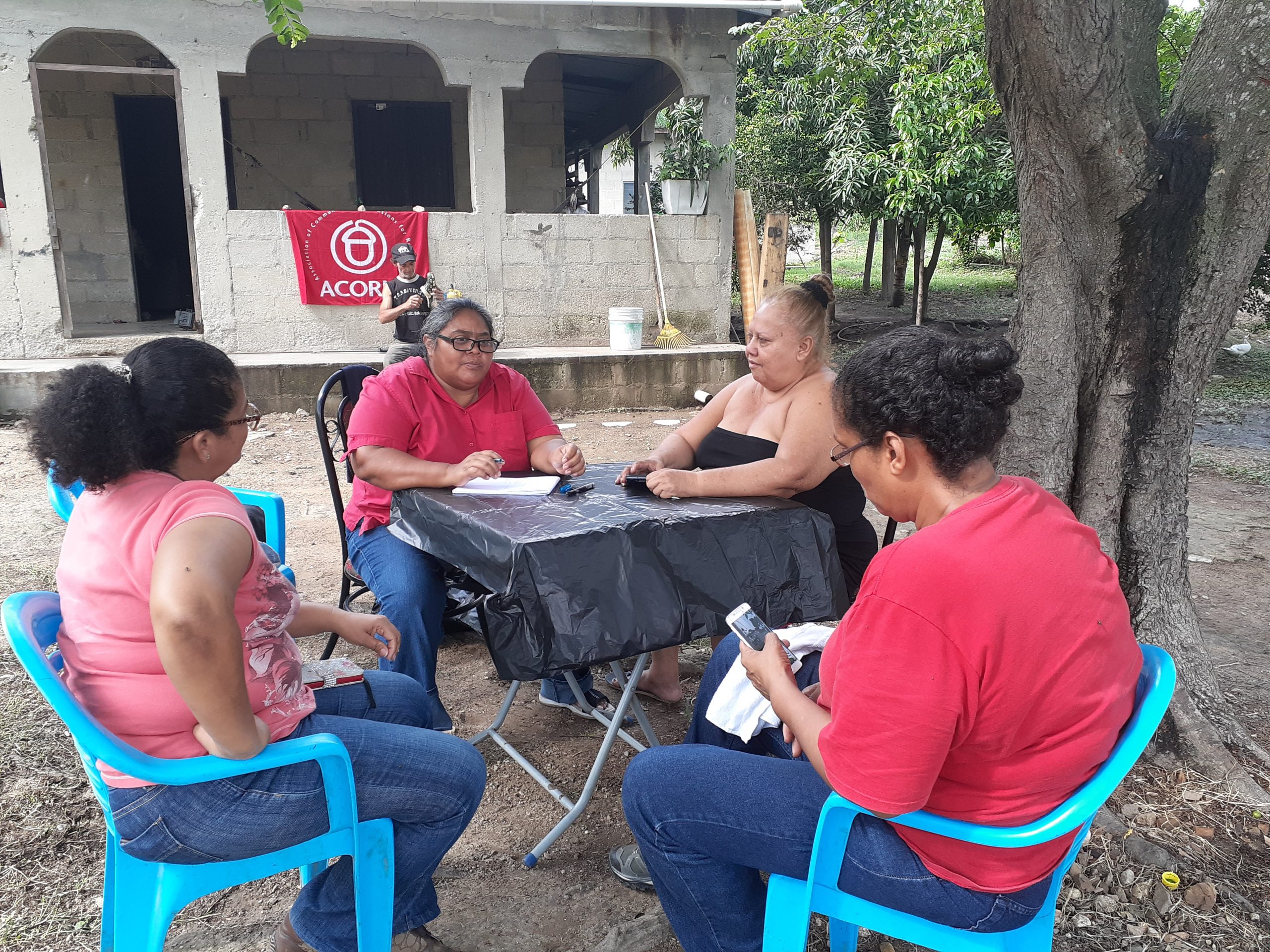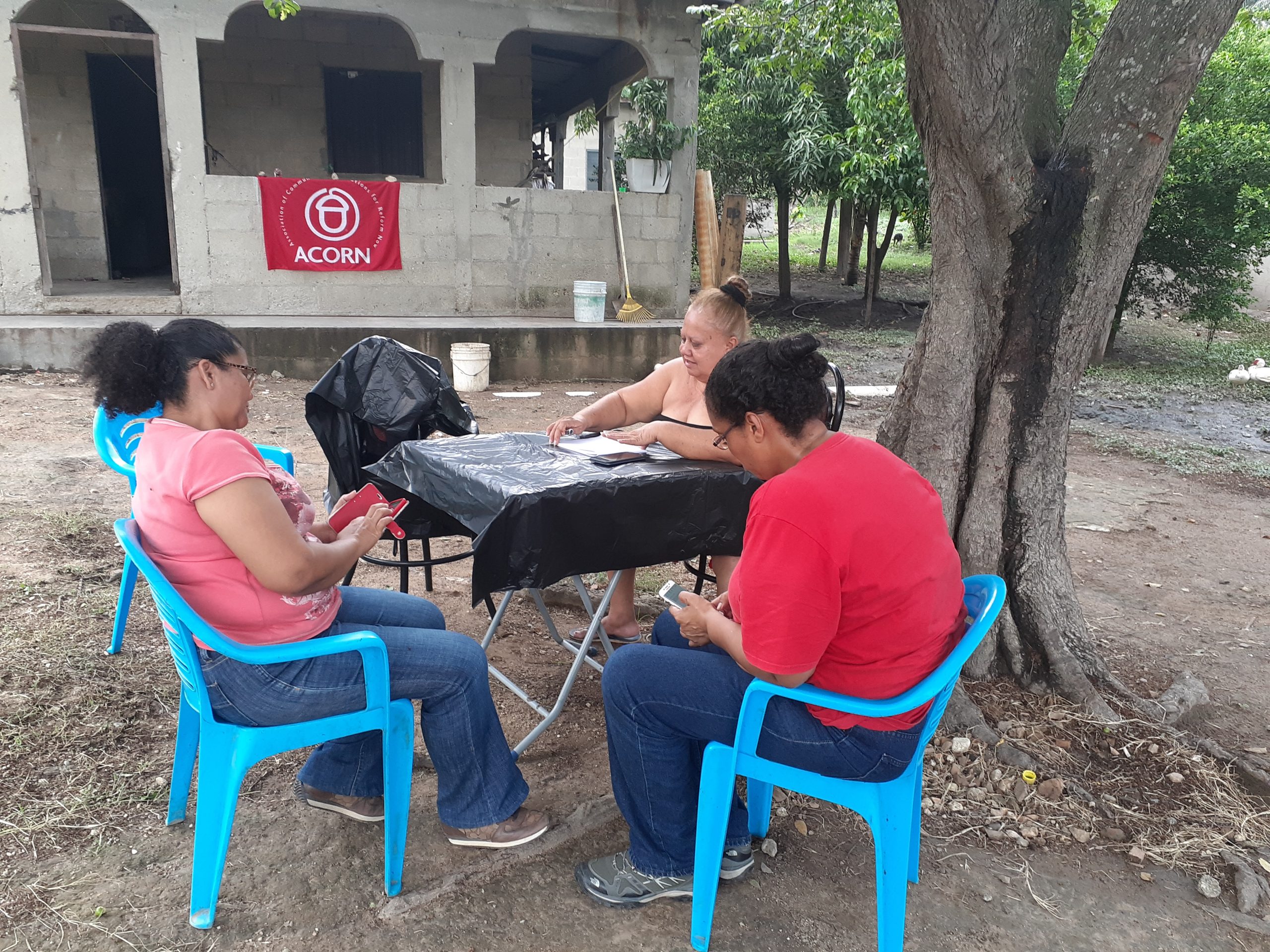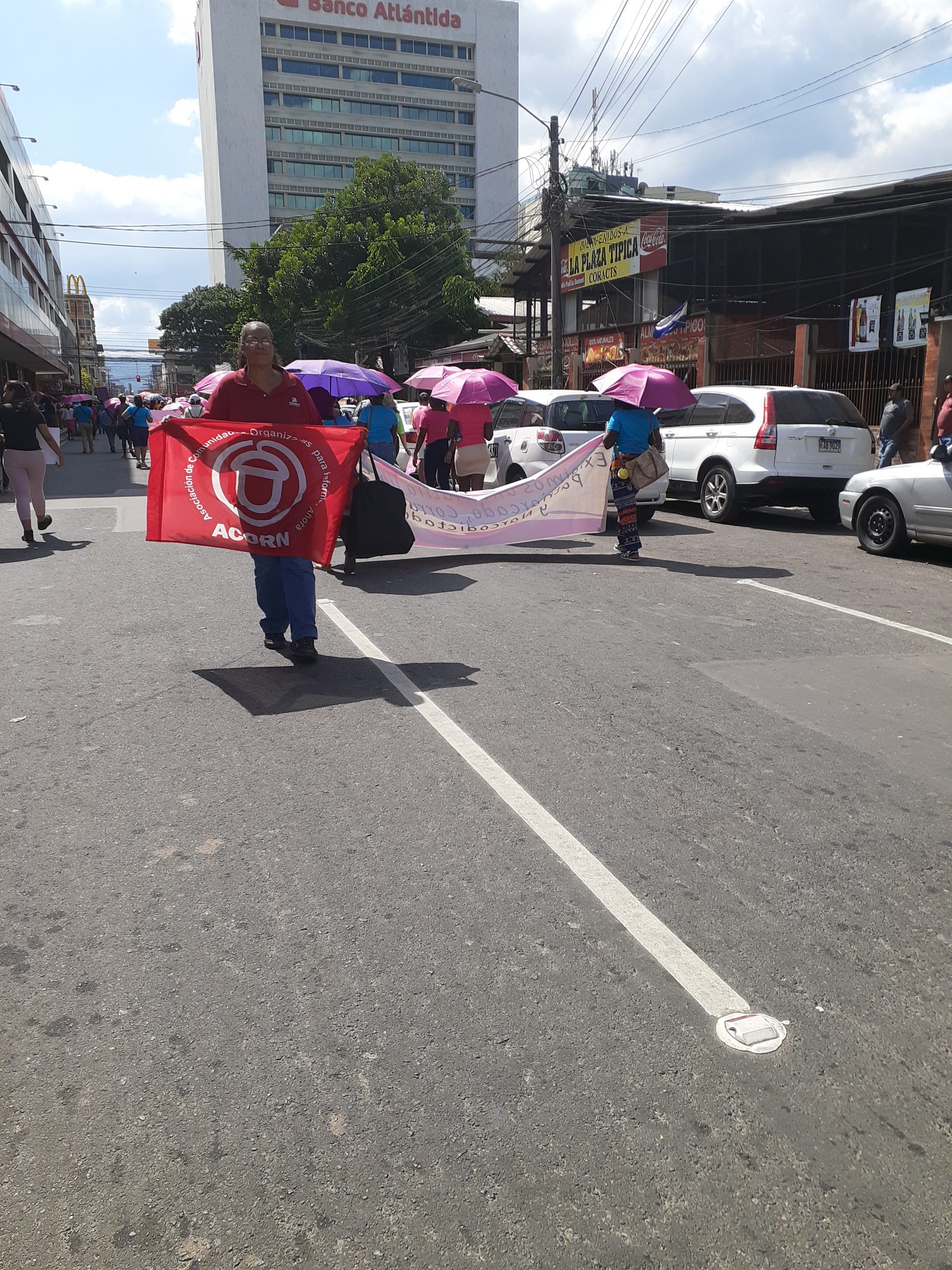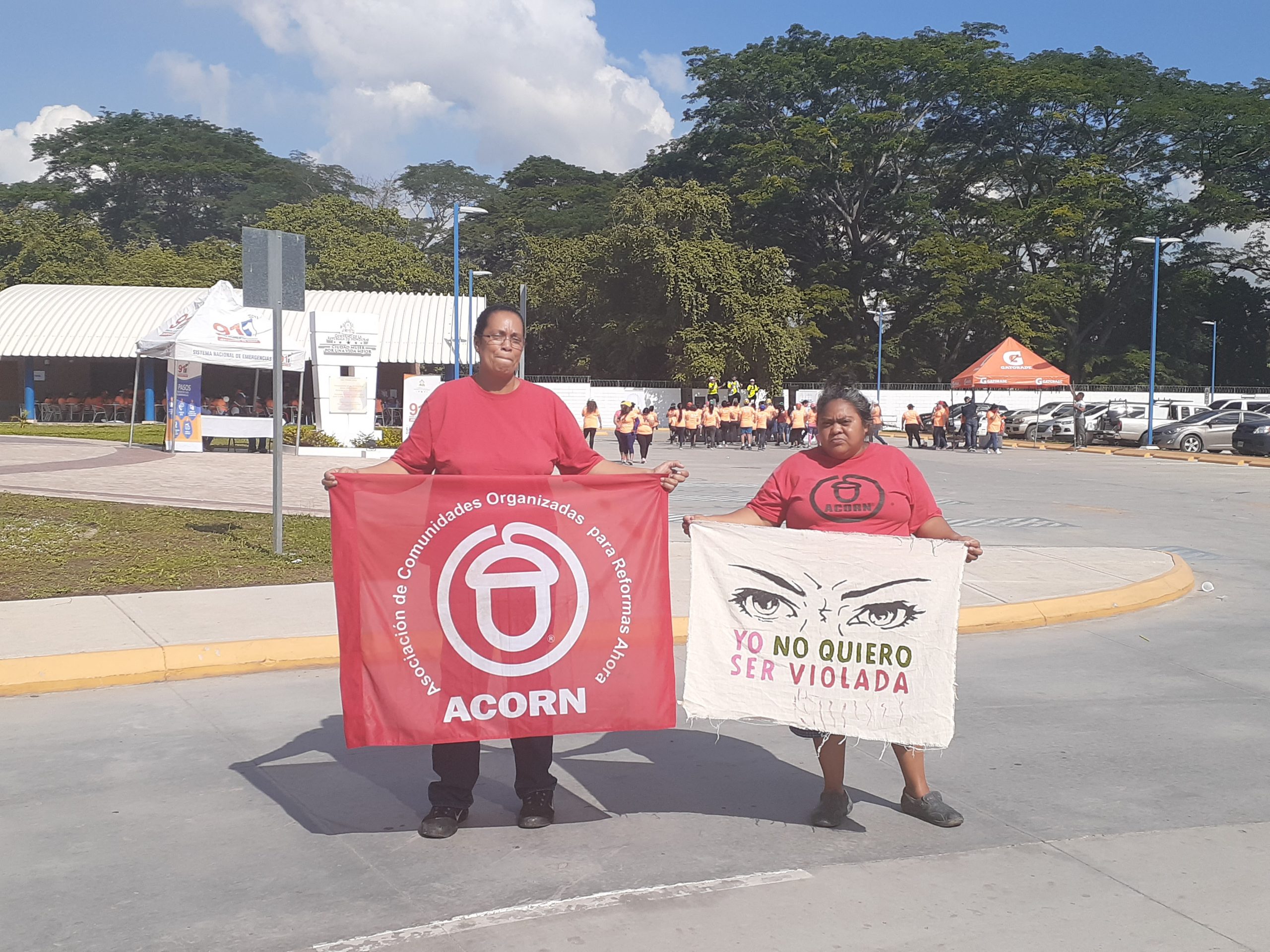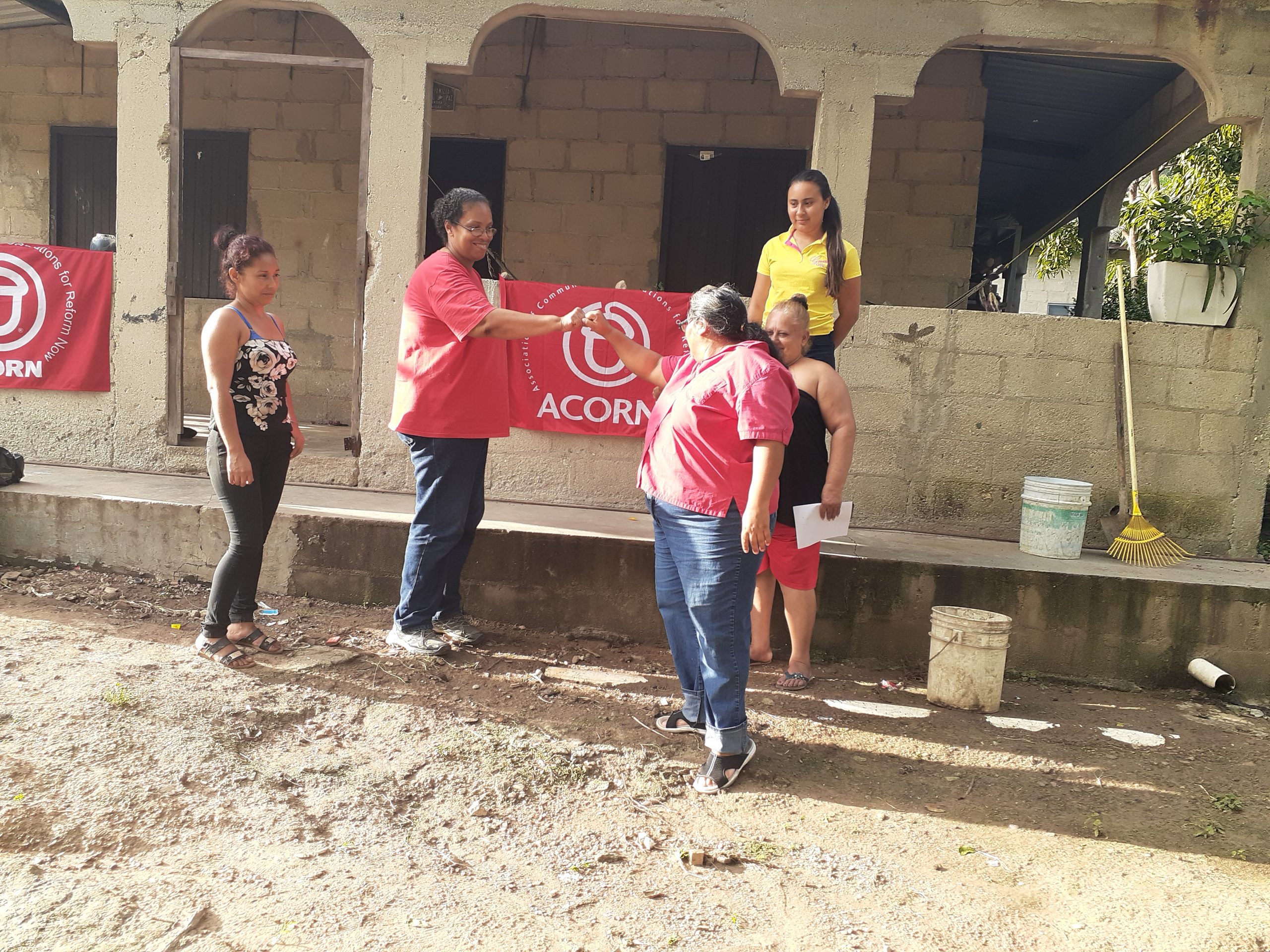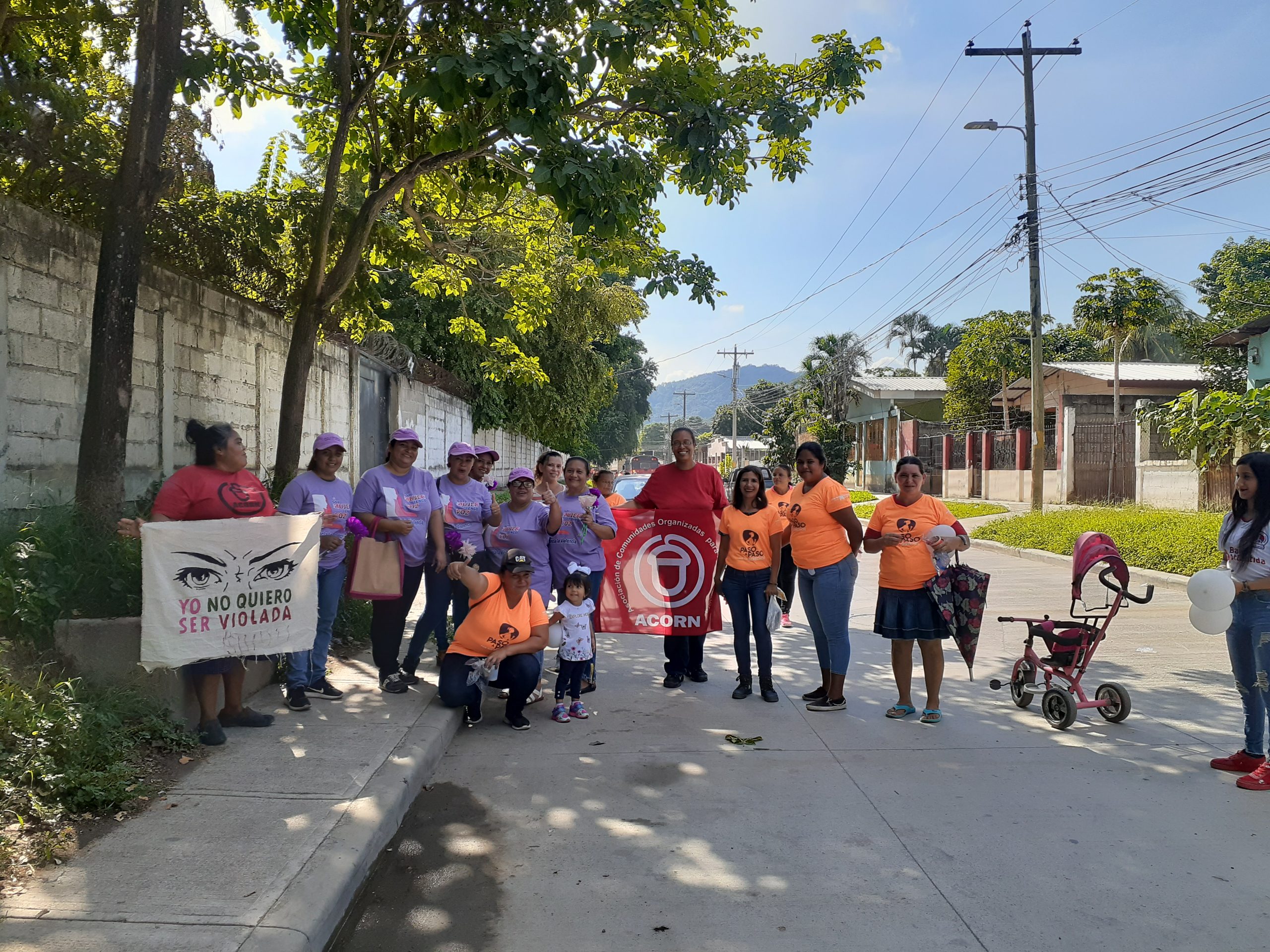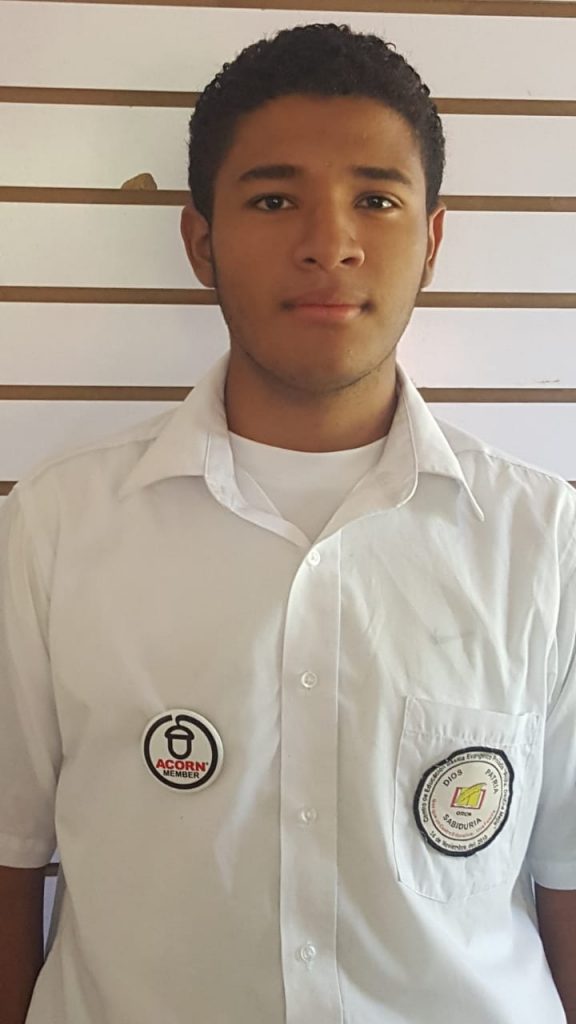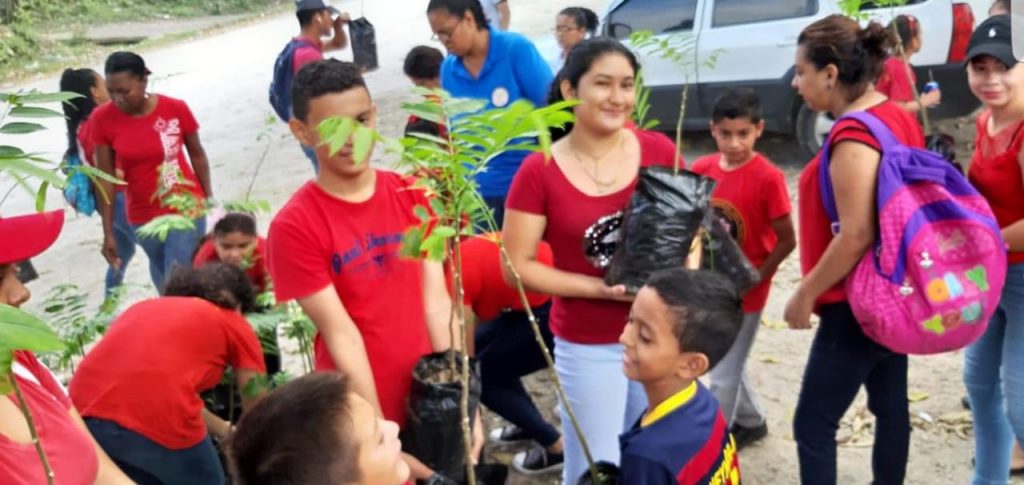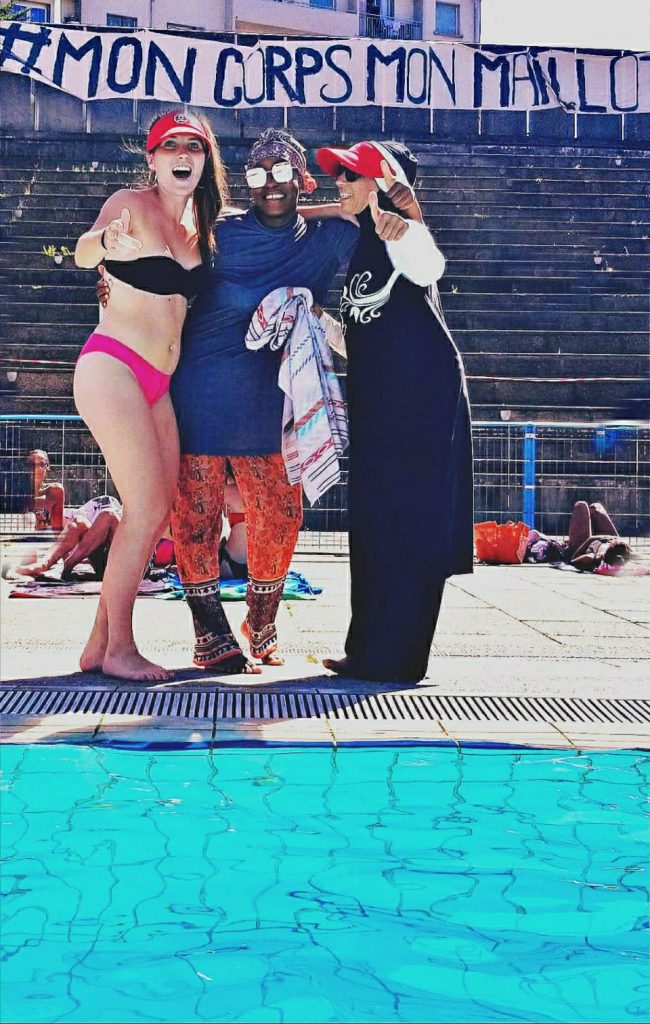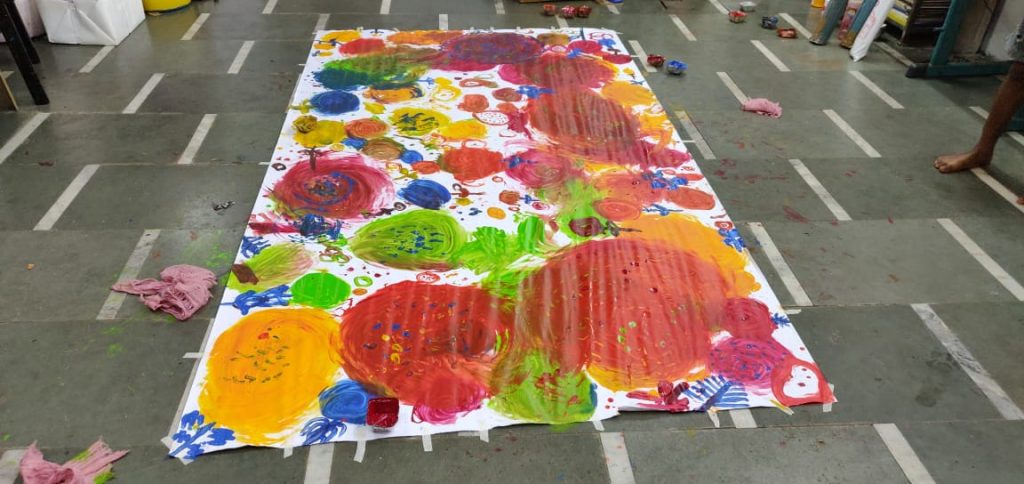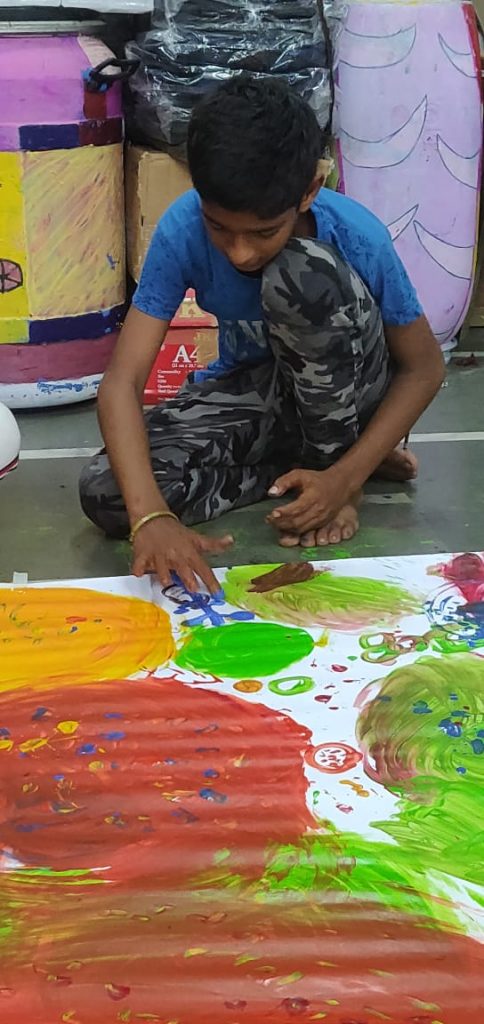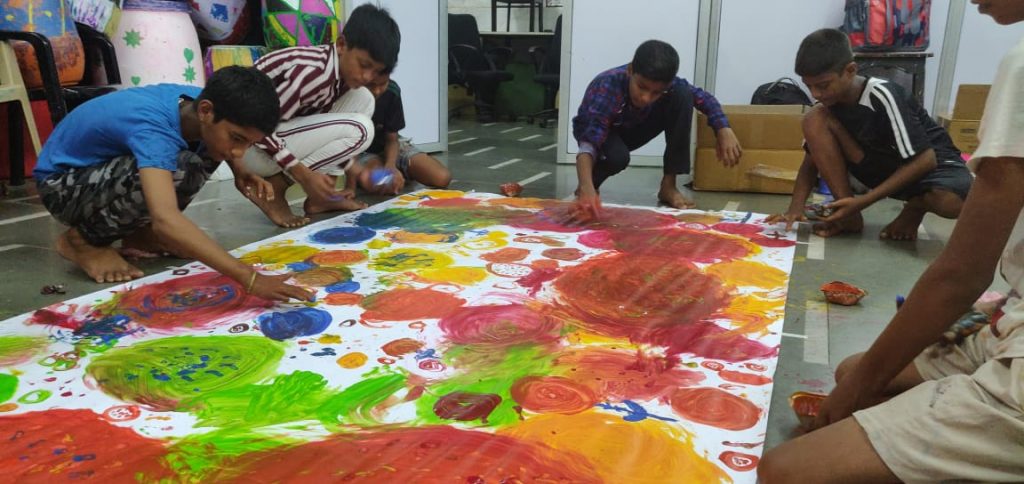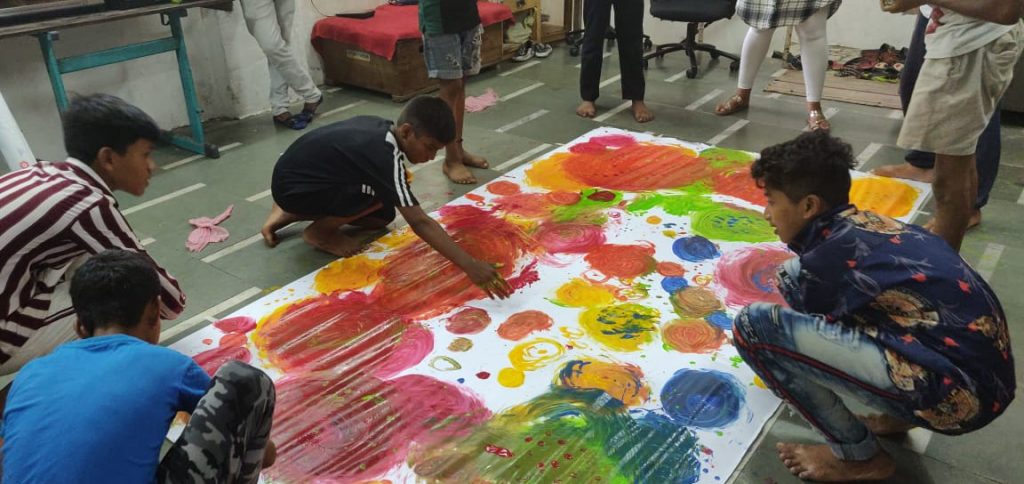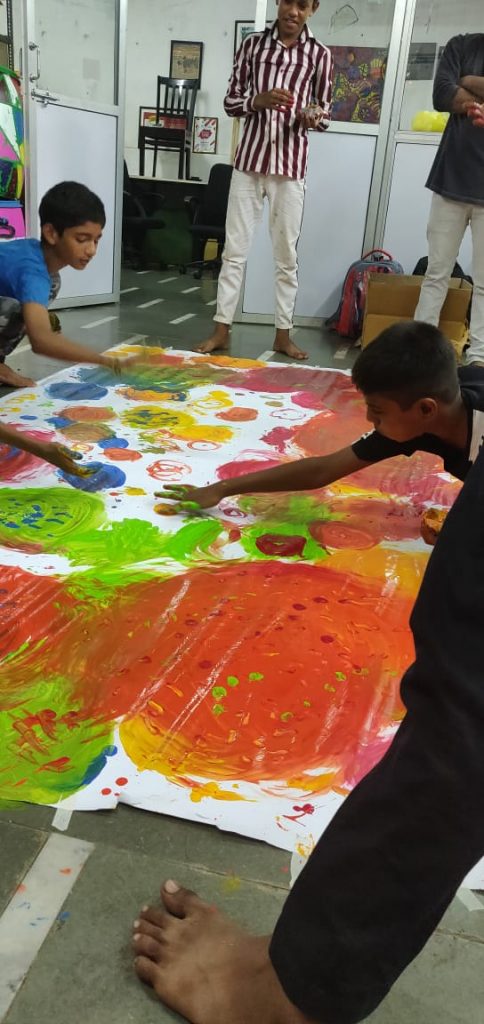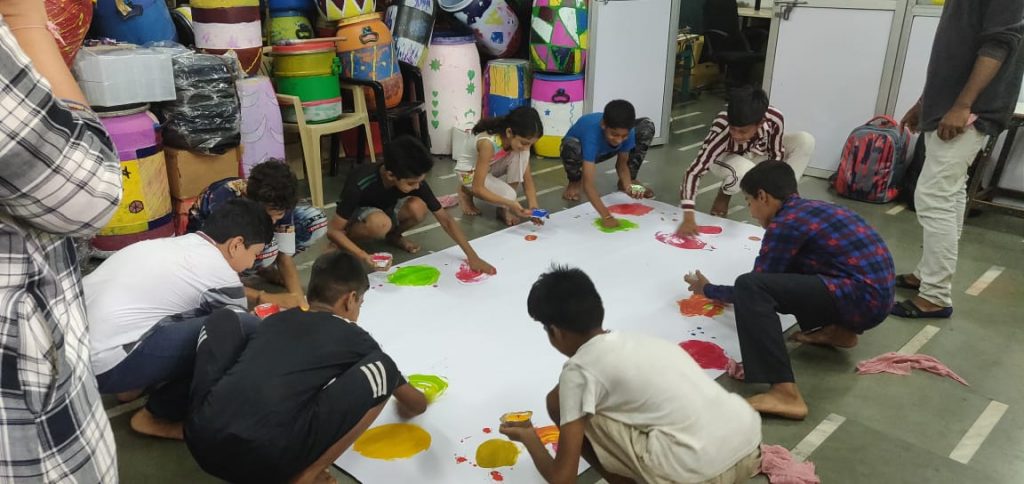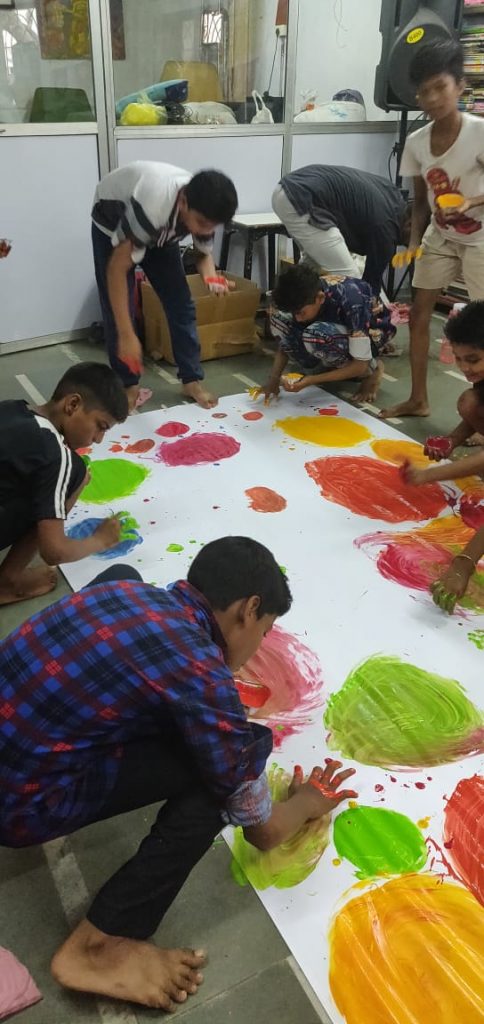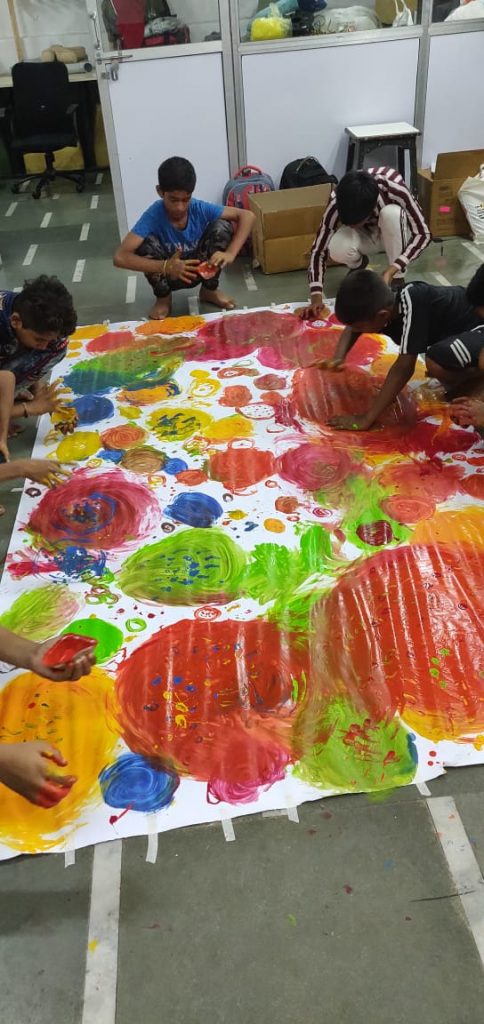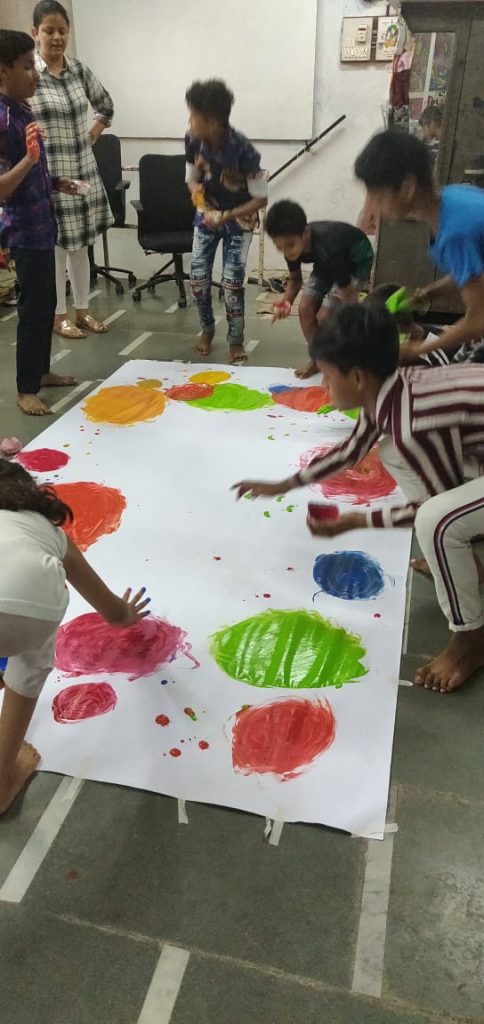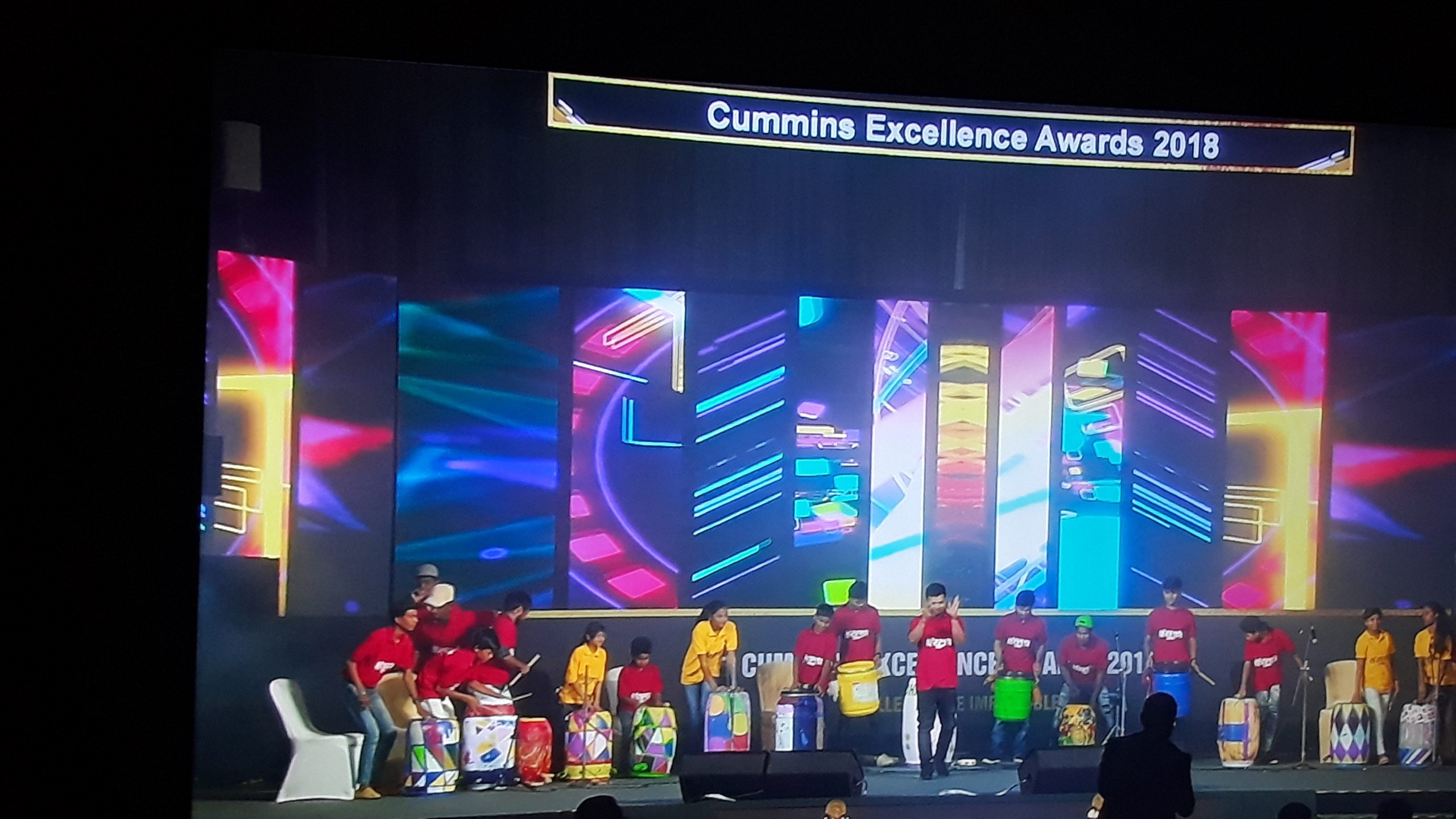Your cart is currently empty!
Author: admin
-
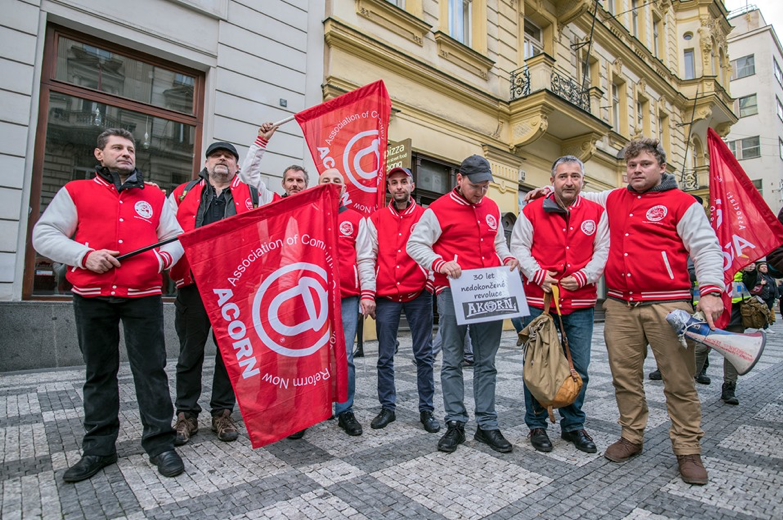
ACORN at the Forefront of the Working Class
12 members and workers of our social building cooperative and civil association met at the Republic Square to support the event called the Revolution Betrayed held by the emergent student platform Real Left.
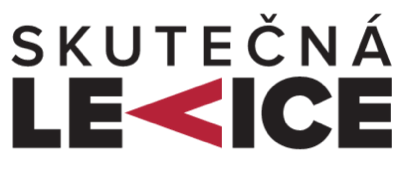
Equality, unity and fraternity somehow disappeared yet left with a taste for the unknown fruit of freedom, which we had managed to try.
We suffered bitterly from how worms wriggled, irritated the stomach juices and triggered a thunderstorm of pathological effects, but its taste, the taste of sweetness still lingers on the palate and reminds of what we were worth and what we would like to achieve.
Yes, the Velvet Revolution is considered to be an unfinished piece of hot iron, and we are holding wrenches and ringing them loudly! Velvet Revolution.
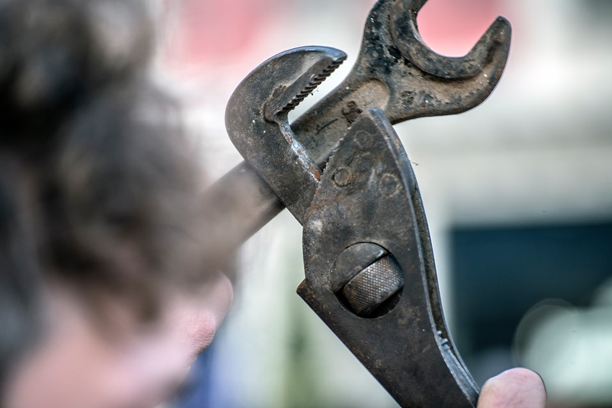
Execution on Property, Debts, The Unemployed, The Homeless and Dead Ideas.
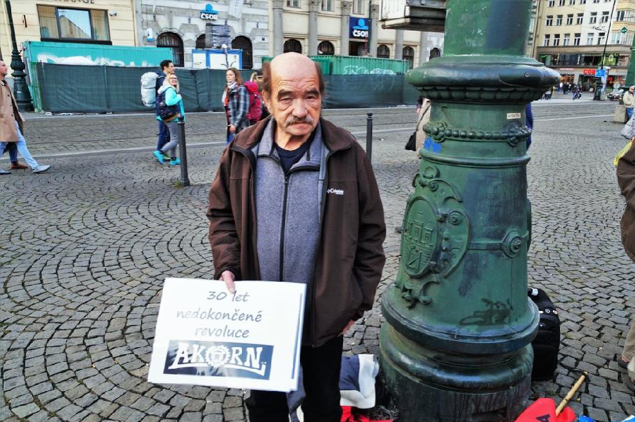
Our solution is so far taking place primarily within the social cooperative and civic community association, but it can also grow to be political. We are both a social cooperative and a registered community association.
At the event “Revolution Betrayed”, we chanted: “Velvet is not over, so let’s pull it through!”
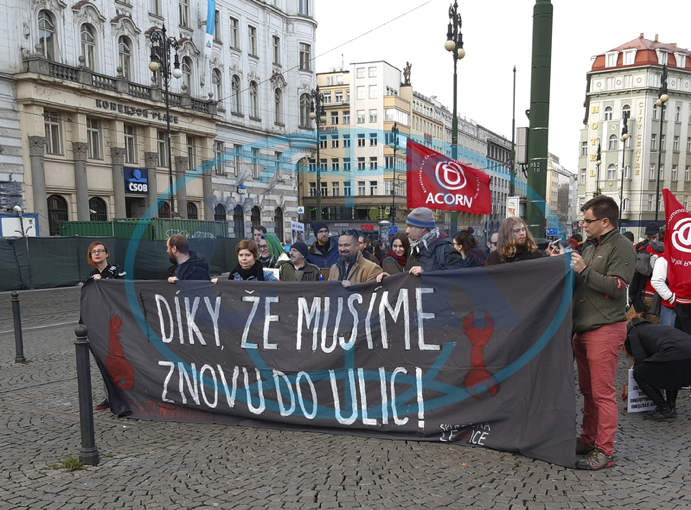
It is a slogan that certainly does not end with one demonstration or will not just repeat on the next November 17.
Czech ACORN members are considering how it can work throughout the year, prospectively until next November.
-Why not launch our own year-round campaign “Completing the Velvet” or some such?
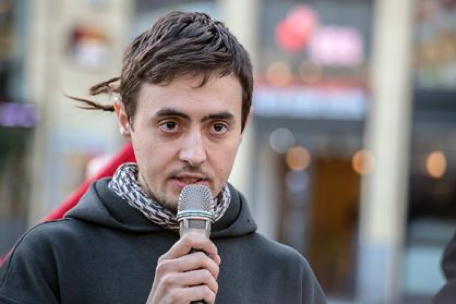
In 1989, the Civic Forum was founded. CF was supposed not only to mediate between citizens and executive bodies of the state, but to strengthen the thesis that democracy is a space for equal opportunities to offer various solutions, concepts and principles.
Public policies should engage in the form of competition, but it does not always have to be rivalry in terms of being attracted to the trough or persuading crowds. We can imagine devising and social consensus and increasing efforts to cooperate.
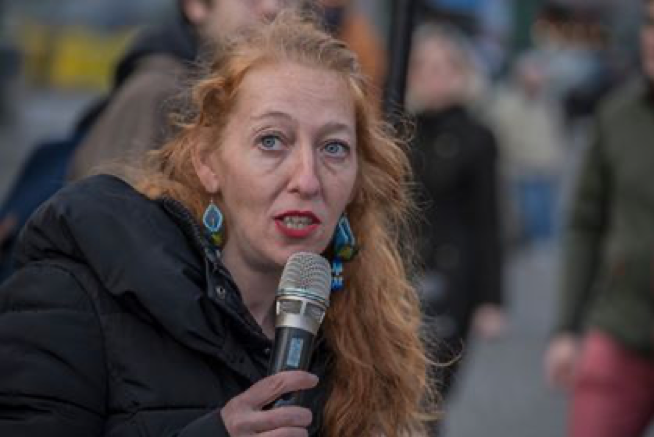
Why do we propose the principle of political competition?
It is here to give citizens the opportunity to choose the agenda that convinces them most, which is the best.
Unfortunately, the very principle of today’s political competition forces the policies of particular political parties to sell their agenda at all costs as well as denigrating the agenda of other political parties. There is practically no way in which a politician would recognize or attempt to support the agenda of their political rival.
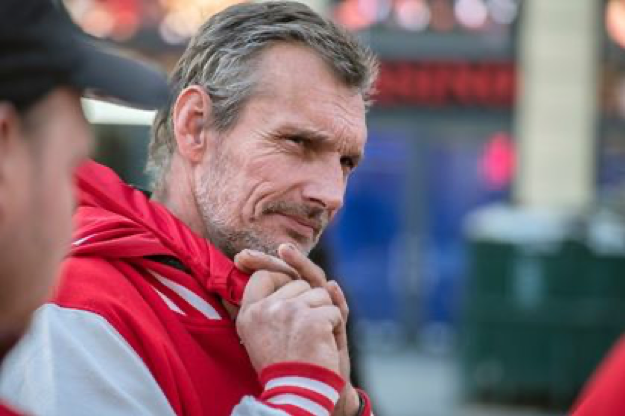
But democracy is here to stay
However, democracy is the principle for an independent platform through which citizens can propose legislation, administrative and executive decisions, engaging in social activism, as well as expressing their views on a variety of issues, such as local matters.
The Civic Forum originally stood a chance to become a platform, as a tool for citizens to exercise control in a transparent way.
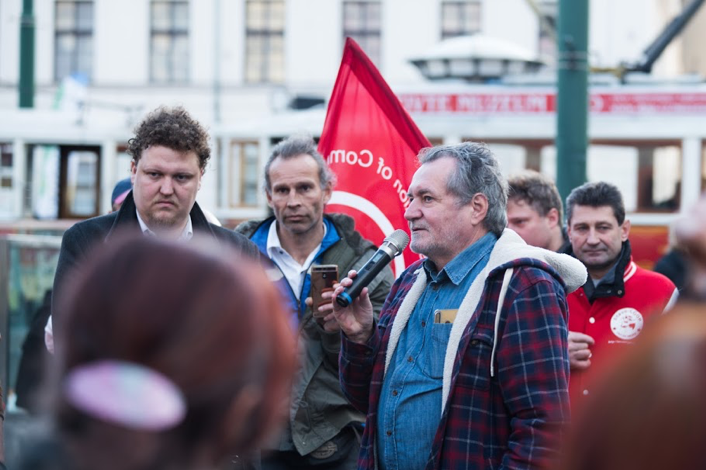
Parliamentary democracy is good, but it has its shortcomings
Parliamentary democracy, except for all its advantages, to a number of parties means the incessant abstention from putting the proposed changes into practice. One government spends four years trying to implement their policies The opposition makes attempts to disrupt it, explaining to the citizens that this is the wrong direction. Four years later they want to come to power and the situation is reversed
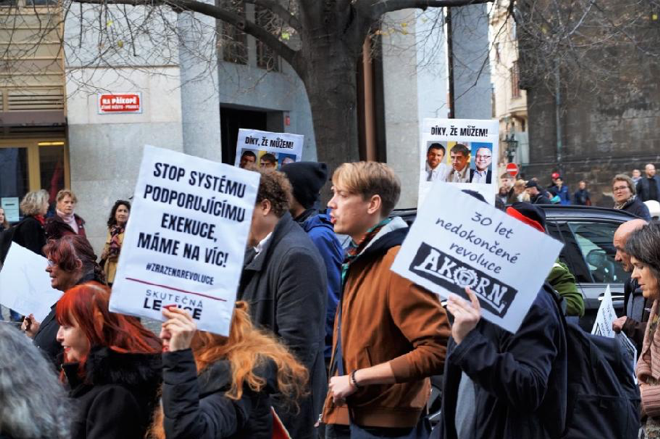
That is also why we believe that a comprehensive platform of civil control and citizens’ direct influence on the legitimate and executive power would be a party principle. By offering people the means to exercise control, we simplify the way civil society works as it begins to function more directly and thus we create a more democratic environment for its full development.
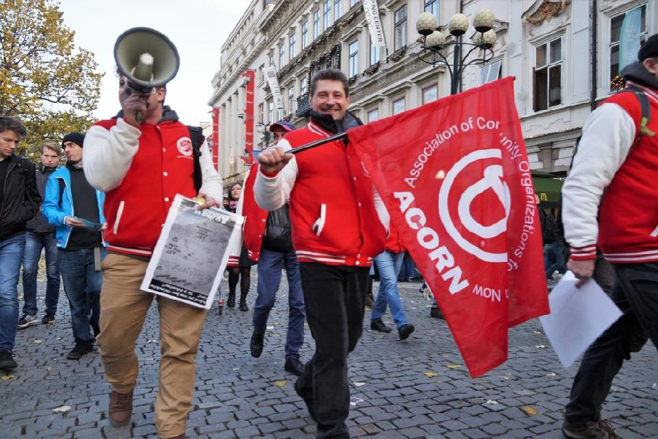
Society is not built in such a way, but it barely survives !!!
Therefore, we staunchly support the implementation of the idea of an organization similar to the Civic Forum. For instance, a way of its instantiation could be establishing a organization that would be nonprofit in civic transparent hands and would force the current order to share power.
We think that creating a peaceful environment based on a friendly community can transform the whole political culture.

At first glance, small communities seem to be unable to change anything by themselves. Nonetheless, they work internally, for example, to provide social help, establish social cooperatives, and externally, they engage in tasks such as activism.
Small grassroots communities can form a common local organization. More local organizations can make up a common regional one, which, if united, can result in a nationwide network.
At first glance, it is a small scale drudgery, but at the same time, small communities keep emerging and some have recently joined together.
So in our view it is possible both to influence political culture and attain certain political goals.
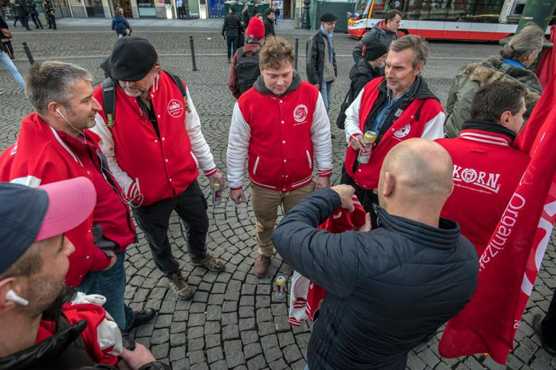
A community does not automatically have to mean a political movement.
In a community, social work, counseling, say neighborhood assistance, is shaped, which can later grow to form cooperatives and become politically involved.
The betrayal of the CF was indeed a revolution betrayed.
CF initially assumed that there would naturally exist political parties and the notion of the party would work, but CF also counted on its own role. CF should be a community and politics should emerge at a grassroots level.
-
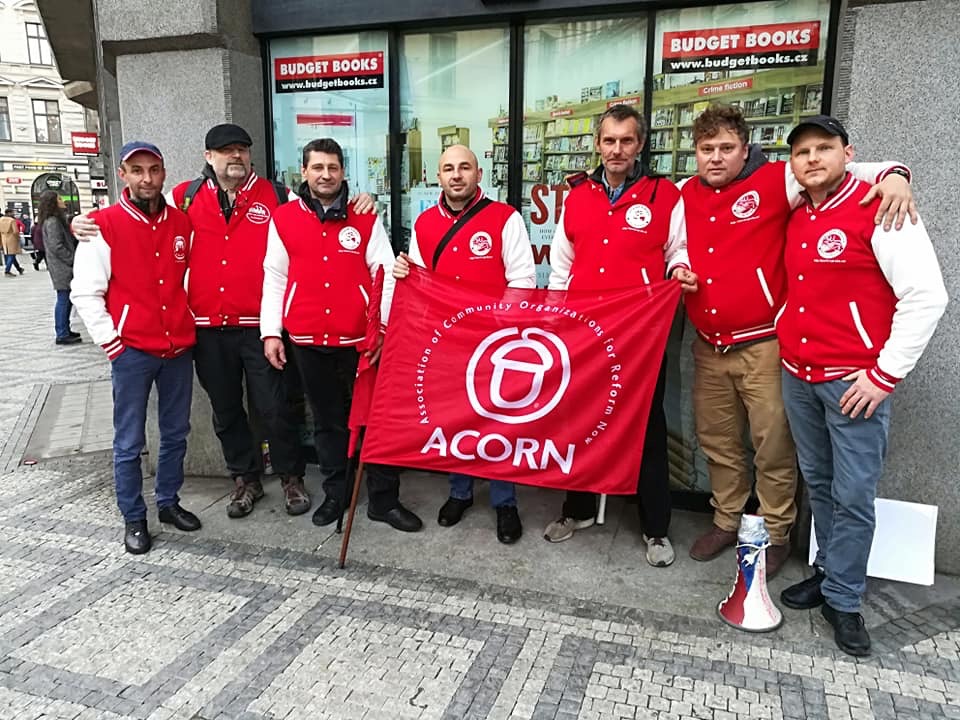
ACORN Czech Republic: We will complete the 1989 Revolution
Demonstration on November 17th anniversary.
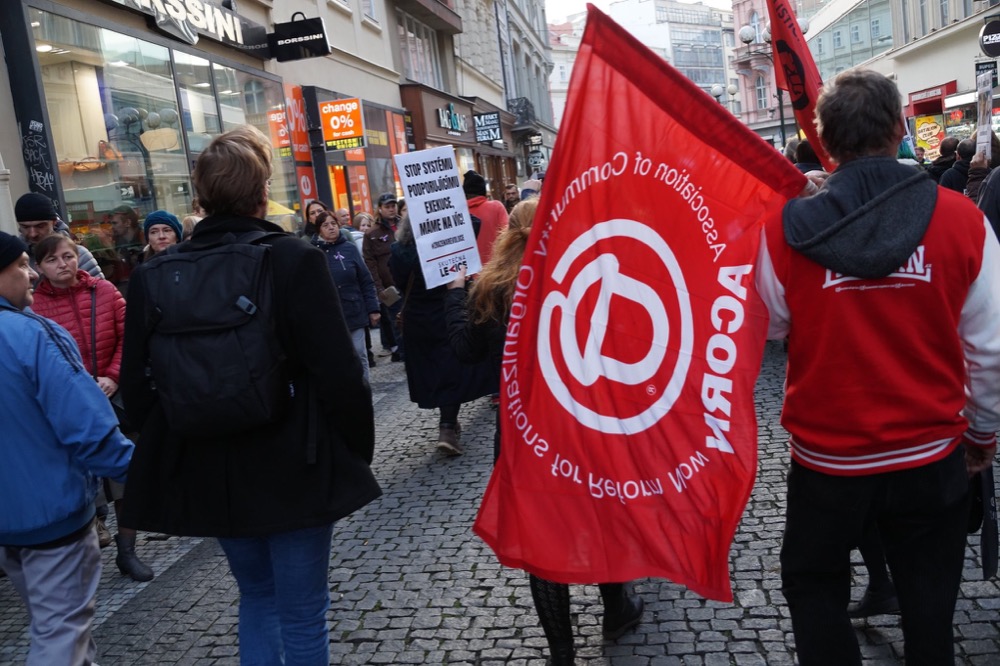
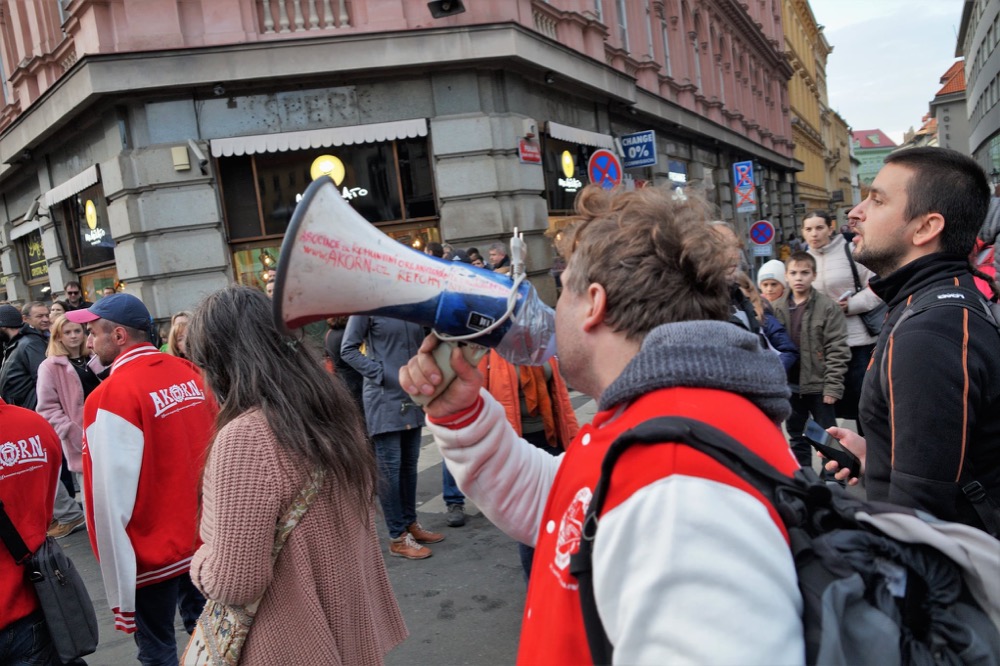
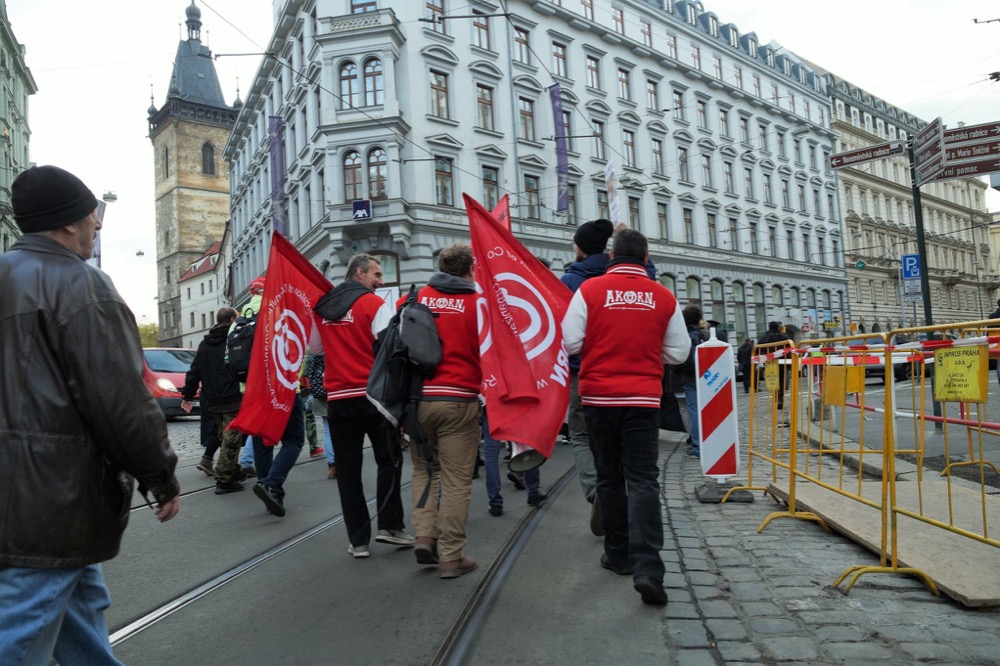
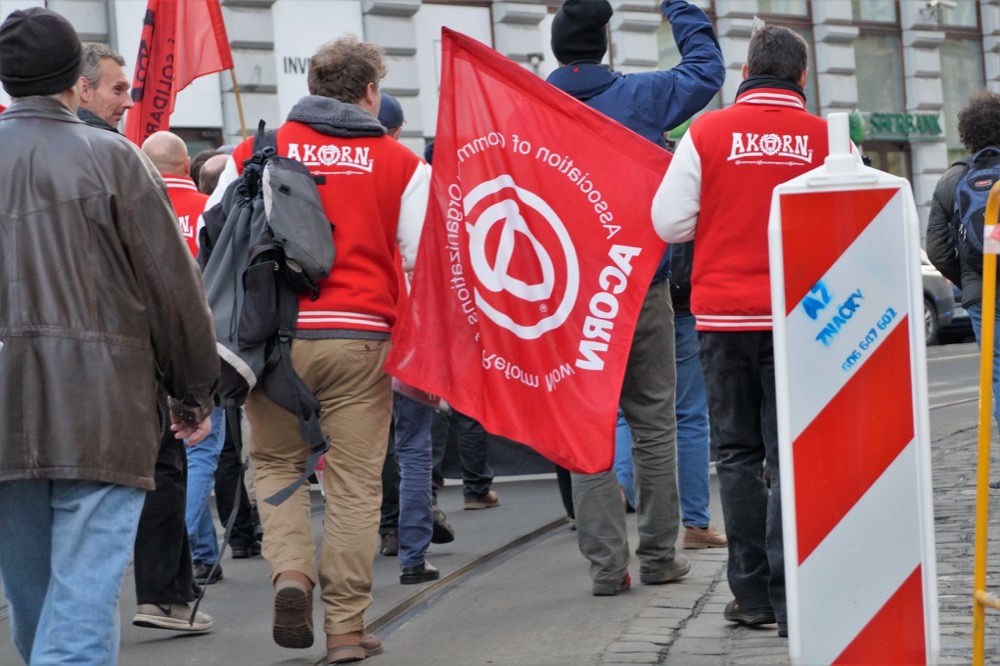


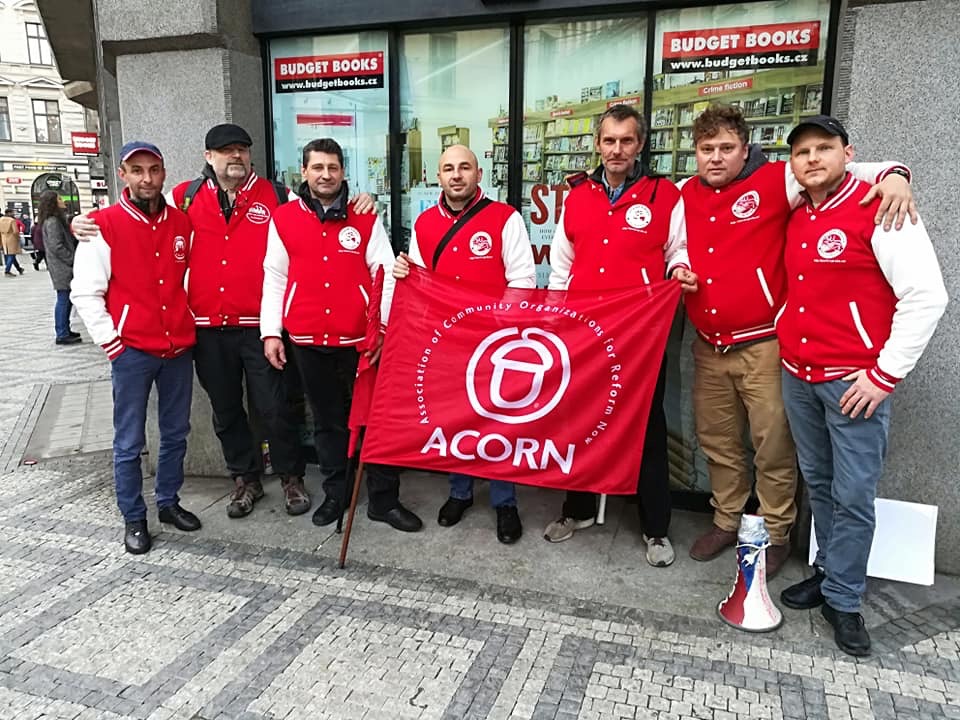
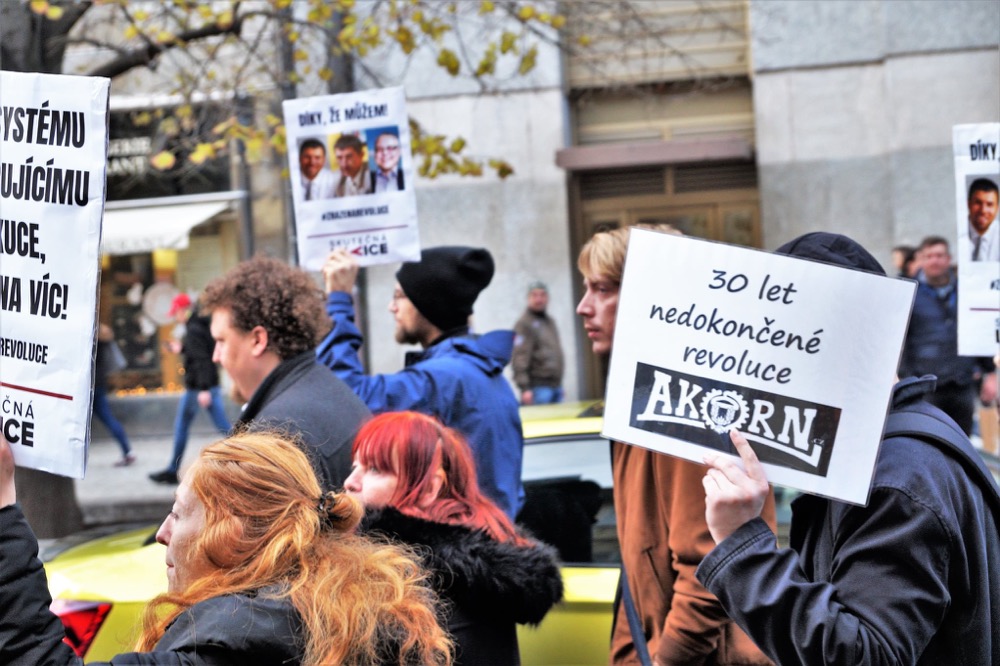
We are a ready organization
At the beginning of its establishment ten years ago, the ACORN Association had constituted statutes ready to support a political parties wishing to set up platforms or non-profits alongside its own political activities that would offer citizens the opportunity to engage in their forums and assemblies either as individuals or entire groups with their goals.
According to the Articles of Association, it is possible to establish both a freadom members forum and a council of associated organizations with fixed settings or a council of organizations which belong directly to ACORN.
In doing so, we seek to extend the possibilities of party politics by involving citizens and, above all, bringing organizations and independent citizens together.
Our association has therefore decided to support some specific movements, to try to create a direct, united platform through which other engaged organizations or independent citizens can directly influence events and, using this principle, directly run or propose programs. Initiatives of free members, community associations, employees of social enterprises and so on can be involved.
Contact us on Messenger on the ACORN Czech facebook page and join the association or cooperative, we are recruiting all those interested in taking democratic measures to reach common consensus of all citizens!
-
Women’s Empowerment Event in Korogocho
Over 400 women attended an empowerment event in Korogocho in Nairobi, Kenya. A 6 month’s supply of sanitary pads were distributed to all participants.
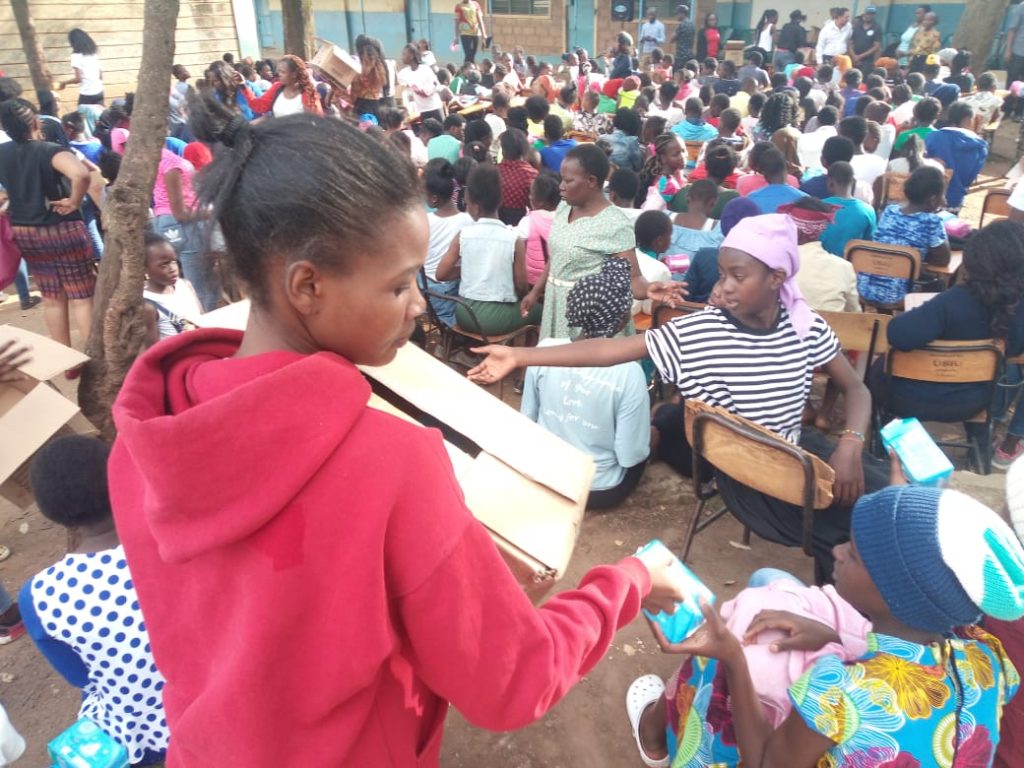
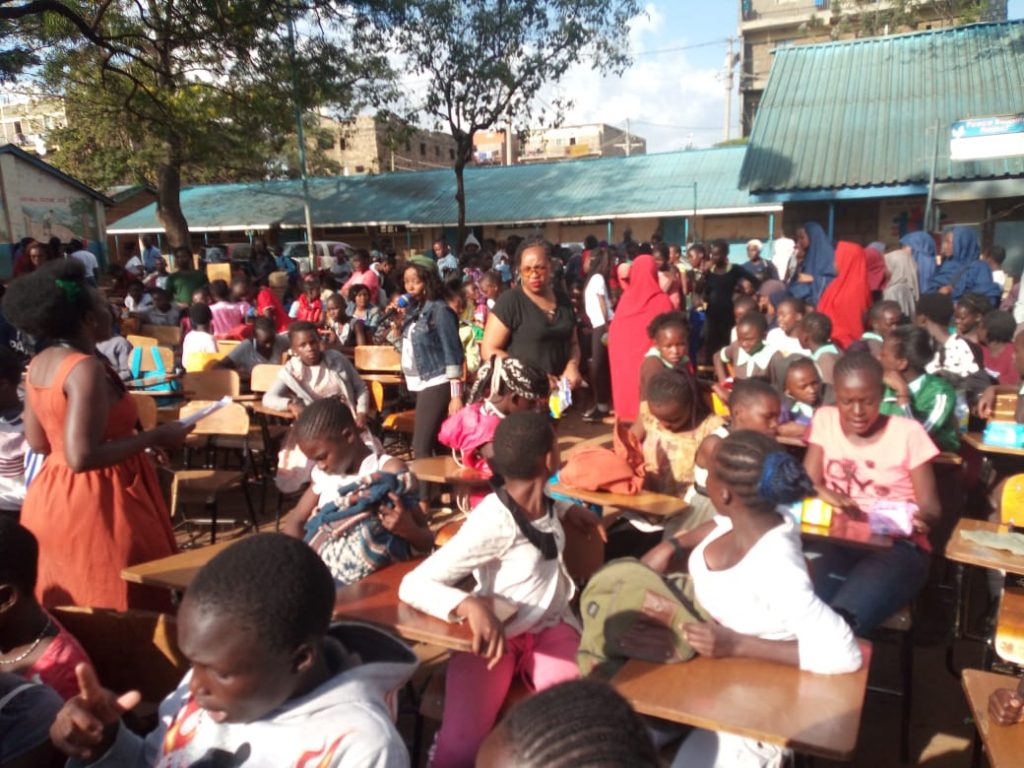
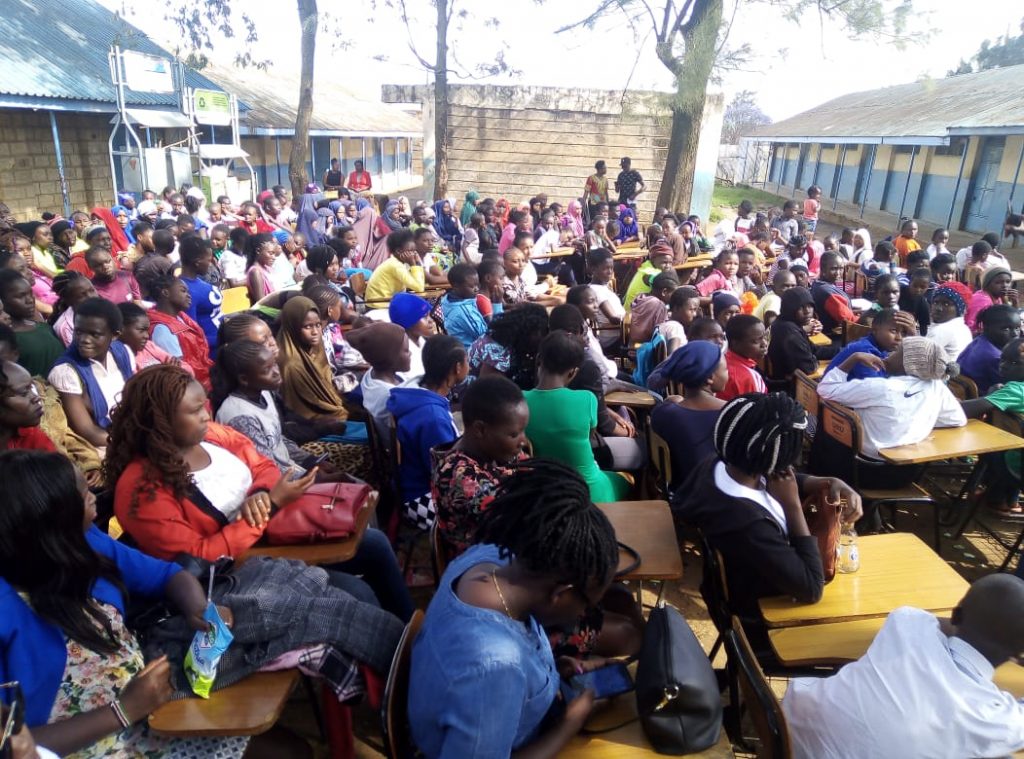
-
ACORN India at the Bloomberg Equality Summit in Mumbai
Vinod Shetty talks about the Dharavi project & Dharavi Rocks performs.
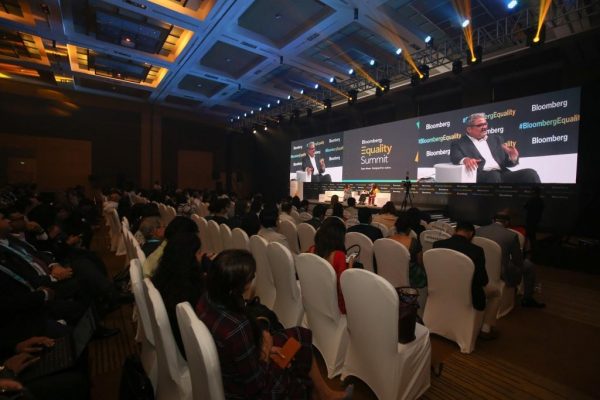
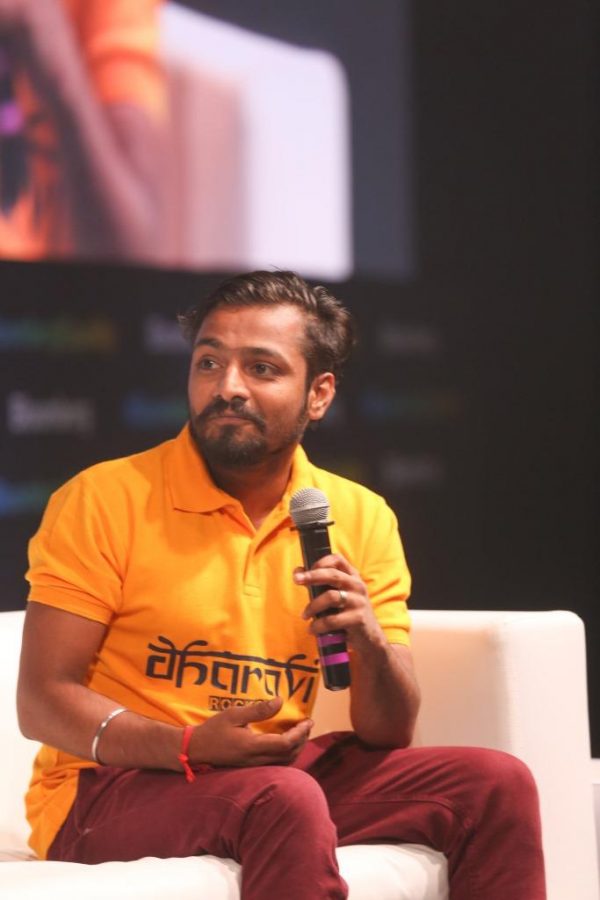
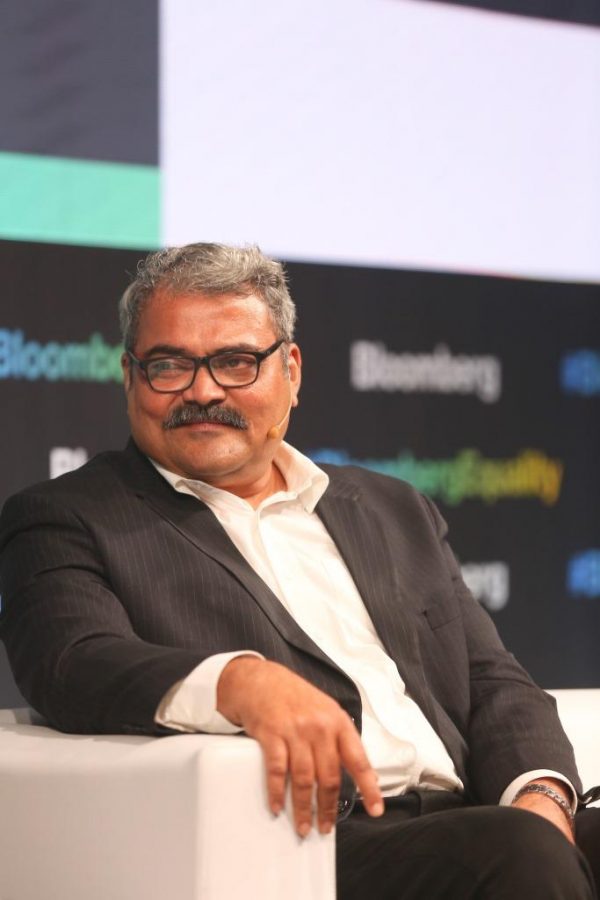
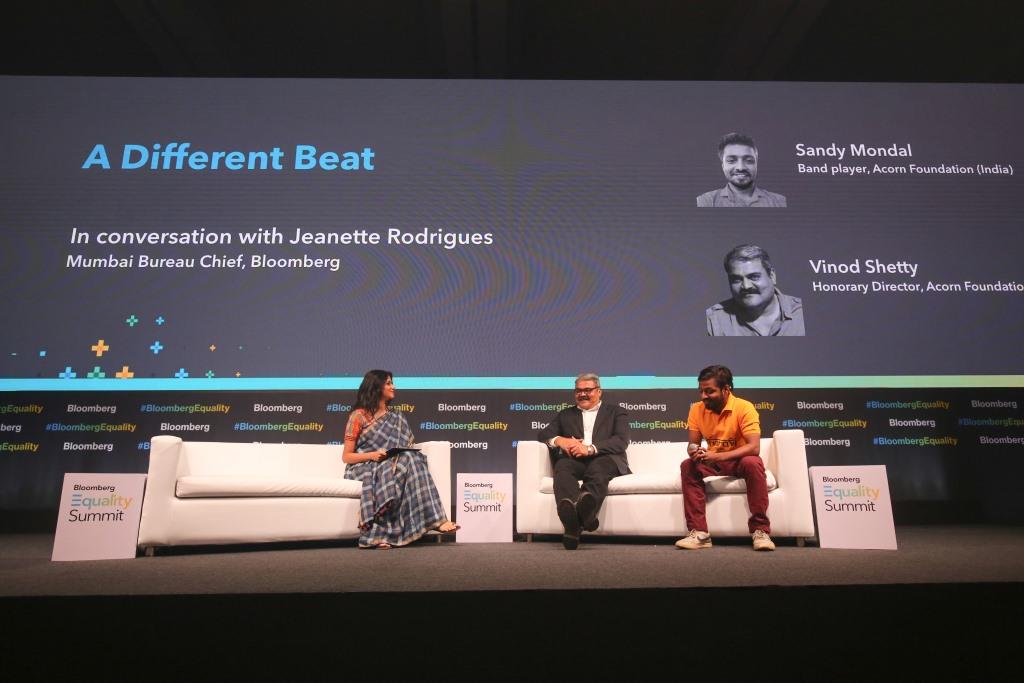
Watch the Bloomberg Equality Summit in Mumbai here.
Video of Dharavi Rocks and Vinod below.
-
ACORN India Featured in Award Winning Article in The Global Post
Illegal Recyclers Prevent India’s Mumbai from Choking on its Waste
India’s financial capital, Mumbai, generates 11,000 tonnes of waste daily. In the absence of a proper waste segregation and recycling system, the city’s only saving grace are thousands of unauthorized recyclers, who run their operations in Mumbai’s infamous Dharavi slums.
Dharavi, the biggest slum of Asia, is an eyesore to the neat and continually rising skyline of Mumbai. A labyrinth of thousands of small workshops and homes, Dharavi is located right in the heart of the maximum city, making it one of the most expensive pieces of land in India, housing the poorest of the poor. It is hard to believe that this mesh of shanties and narrow lanes, littered with garbage and flooded with sewage water, is what prevents the financial capital of India from choking in its own waste.
P Spread across 520 acres of land, Dharavi is the center of recycling of thousands of tonnes of waste that Mumbai generates every day. More than 5,000 single-room recycling units work relentlessly to skim through unsegregated and monumental quantities of waste to cull out metals, plastic, paper, and glass.
Laxmi Kamble, a single mother and a third-generation Dharavi resident said that recycling has been a business in the slum since independence.
Making of Dharavi
Dharavi came into existence in 1882 during the British colonial rule in India. An outbreak of bubonic plague in Mumbai prompted the British government to transfer some of the polluting industries to a piece of land that later came to be known as Dharavi. With the advent of mechanized technology, labor-intensive industries died out and Dharavi became the abode of migrant-waves that swarm the city every month.
Recycling eventually emerged as a profitable business. Director of Acorn Foundation (India), Vinod Shetty, said that it is hard to make profits for organized recycling businesses in India due to the lack of a system to segregate waste at the source and keep it segregated during the transit. Garbage trucks managed by Brihanmumbai Municipal Commission do not have provisions to carry segregated waste which is simply toppled inside the trucks and dumped in landfills on the outskirts of the city.
India’s largest and the oldest dumping ground, Deonar, is located in the eastern suburb of Mumbai. Deonar landfill occupies an area big enough to encapsulate more than 240 football fields. Set up in 1927, Deonar landfill now has mounds of trash that have attained a height equivalent to a nine-story building. In 2016, a fire broke out at the landfill. The dump continued to be on fire for four days, forcing 70 schools to dismiss classes.
A high disposable income and lack of awareness and concern for the environment among urban masses has led to a 105 percent rise in waste generation in Mumbai between 1999 and 2016. Recycling units in Dharavi play a huge role in intercepting recyclable items from getting dumped into a landfill and adding to Mumbai’s mounting waste crisis.
Supply Chain of Recycling
Through the decades, these unorganized recyclers have developed an organized and robust supply and demand network that contributes to Dharavi’s total annual turnover of US$1 billion. The smallest unit of this supply chain are ragpickers who skim through trash bins and landfills to pick out recyclable articles. A typical day for Balu, a ragpicker, starts with a glass of strong black tea and a snack. For the next 12 hours, he will be meticulously fishing out recyclable items from public trash bins. “You won’t believe the kind of things that I find in the garbage. Once I found a fully functional foot massager,” he said. On other days Balu makes less than $3 a day, which barely covers his food expense.
Sorting recyclable items from dumps exposes ragpickers such as Balu to a variety of health hazards. At 17, Balu complains of shortness of breath, but he cannot afford to consult a doctor or buy medicine. “It is a skill that you acquire at the cost of your health. Once I opened a bottle of liquid and spilled some of it on my hand. I think it was acid as it burnt the skin on my hand,” he said while showing a patch of burnt skin on his hand. “I don’t have a choice, rag-picking is the only way I can make a living.”
Recyclers also source material from Kabadiwalas. For decades, Indians have been selling recyclable household waste to these door-to-door collectors. The Kabadiwalas make rounds of residential areas while pushing their hand wagons, announcing their presence. People call them to their homes to sell paper, plastic, glass, and electronics. Many haggle to get the best price out of a kabadiwala for their discarded items. The kabadiwalas sell their purchase to recyclers in Dharavi for a paltry profit of 5 to 10 percent. The most organized of all these suppliers are scrap agents who buy large quantities of reusable waste auctioned by companies and then sell it for a profit.
Hours of Labor
Shirish Jani, a second-generation entrepreneur, is very proud of his family business which was started by his father in 1962. His 250 square feet recycling unit is packed to the rafters with cardboard, paper, and plastic barrels.
“We often buy plastic and cardboard through a scrap agent who has ties with the pharma and chemical companies. The purchased scrap is then transported to our recycling unit in Dharavi. After washing and processing we generate a profit of 10 percent,” said Jani.
Repackaging units with a small demand serve as clients for recyclers such as Jani.
Dharavi’s thirteen compounds have mounds of segregated colored plastic. Segregated plastic is ground and the granules are sold to packaging companies. However, the process of dismantling and sorting needs hours of labor.
Shadab Chaudhary left behind his wife and two daughters in his village in North India to come to Mumbai for work. The lack of blue-collar jobs in rural areas stimulates waves of labor migration to Mumbai. Shadab works 12 hours every day and sleeps on the pavement to save enough money to send home. “I get paid Rs.10,000 ($144) a month, this is the best you can get here,” he said.
Second Life
Metal extraction from e-waste to the refurbishing of second-hand home appliances, there is nothing that cannot be used or reused in Dharavi. At 18, Sandeep Soni is the proud owner of a second-hand home appliance shop that supports his family of six. A customer can buy a functioning washing machine at one-third of its original price from his shop. “We even give a guarantee of three months,” he said. On days with slow business, his staff consisting of three teenage boys sit in the dark backroom to extract copper from discarded electronics which fetches him about $5 per kilogram.
E-waste recycling in Dharavi is not as popular as plastic, paper, and glass, owing to the hazardous nature of the extraction techniques. The metal extractors at Dharavi employ two to three workers at a time to extract profitable quantity of metals. Workers sit in an assembly line fashion with each taking a different set of responsibility during the extraction process. Javed* has been making his living through metal extraction from discarded e-waste for over a decade now. “I extract metals after taking apart electronics. There is a huge market for metal extraction from PCBs but I lack knowledge and equipment,” he said.
Governmental Guidelines
In 2016, the Government of India introduced Extended Producer Responsibility to ensure that the industries associated with plastic and electronics take the onus of recycling end-of-cycle products by establishing collection systems. Since 2016, the Central Pollution Control Board has been cracked down on some of the major electronics companies in India for not complying with the norms. According to the same set of rules, the dismantling of e-waste is only allowed to be done by authorized recyclers in workshops equipped to carry out the processes with compliance to the central government’s 2016 guidelines for e-waste management.
For Dharavi’s e-waste recyclers such as Javed, it is impossible to execute environmentally safe dismantling of e-waste, and there is no way for him to acquire an authorization to conduct his business legally.
“We have a hand-to-mouth existence. We have neither time nor capital to invest in compliance. My business may not be legal but it is essential. E-waste recyclers in an unorganized sector not just earn a living through recycling, but also process tonnes of e-waste, which is beyond the capacity and means of recyclers in the organized sector,” he said.
Acorn Foundation (India) Director Shetty works closely with recyclers in Dharavi to provide them with legal advice and solicit licenses and permits on their behalf. He calls the situation of Dharavi recyclers an epitome of Catch-22. “Excluding the unorganized sector from the recycling ecosystem is a mistake. Organized recycling units do not have the benefit of cheap migrant labor and a seamless supply network,” he said. “Only people who are destitute and desperate for work will put such hard labor to make a meager living.”
For Shadab and Javed, the pros and cons of their profession hold little importance. “I don’t understand legalities associated with my business. I try my best to keep my workers safe and only extract metals that can be easily extracted,” said Javed.
For Shadab, the illegal status of his workplace makes no difference. “What would you choose between supporting your family now and developing a new set of skills in an attempt to find some other kind of legal job,” Shadab said.
Environmentalists, organized recyclers, electronics, and plastic product manufacturers and the government are yet to devise a sturdy waste management system in India. Meanwhile, thousands of recyclers and labors in Dharavi continue to process the waste generated by the millions of inhabitants of Mumbai.
*Name of the metal extractor Javed has been changed to protect his identity.
This article won The Globe Post’s 2019 writing contest.
-
ACORN News April 2019
Hello Le texte français suit l’anglais We’ve had recent screenings of “The Organizer” to 65 people in Philly, at the offices of the Philadelphia Unemployment Project and 45 people at the Maysles Documentary Center in NYC, including old ACORN veteran organizers and leaders. We also showed clips along with a discussion about labor organizing at Georgetown in Washington, DC. Training continues in Milwaukee with Amani United, including planning campaigns to save a bus line through the neighborhood and efforts to launch a community benefits campaign with the Democratic National Convention, scheduled for July 2020. We have reconnected with CASA, the immigrant rights organization based in Maryland, and did a door-knocking training with their 20 community organizers. CASA is interested in further help with their expansion to 7 other states in addition to Maryland, Virginia, and central Pennsylvania where they work now, as well as assistance in creating additional classes of membership along the lines of ACORN’s experience. Also, there are discussions of a partnership internationally with their membership and ACORN’s in Africa. They have several thousand Cameroonian members centered around White Oak, MD, so initial discussions are focusing on ACORN’s work in Cameroon. We’re still awaiting final confirmation on training and consulting work for Roma Standing Conference in Bulgaria for 30 organizers in August. The Toronto director of “The Organizer” is trying to organize a showing in Toronto on the Friday before the ACORN Canada convention. Campaign training with InAdvance in Oakland for 25 organizers is scheduled in May, and the ACORN Canada HO/LO meeting is in April. We also have Irish tenant groups considering affiliation with ACORN in April; the Frankfurt team is moving to register to begin organizing with ACORN in June, and ACORN’s affiliate in France has started an organizing drive on expansion to Toulouse!
Wade, ACORN International Chief Organizer
See some more highlights below.
ACORN around the world Fighting for the right to housing in Ottawa ACORN members and allies rallied for affordable and liveable housing in the city. Market rents have increased by approximately one third in the last decade while area median income increased by only four percent. Meanwhile, many tenants are subject to maintenance issues, limited heat and hot water, cockroaches and bed bugs, and inaccessible buildings are waiting for 5-10 years on the affordable housing waitlist. ACORN’s demands include inclusionary zoning, non-profit and co-op housing on government land, action to tackle renovictions, and landlord licensing. The rally ended with ACORN members chanting, “Fight, fight, fight, housing is a right!” Fighting for workers’ rights in Lyon On March 20, about 60 subcontracted workers organized within UNITI rallied alongside activists from Lyon. They blocked Primark and put the leader of the company, Protectim, on notice for unpaid hours and poor working conditions. .png)
Victory in Douala! Water for Bepanda Bonewanda residents after 6 years Thanks to the organizing of members of OnEstEnsemble, Camwater has finally taken action to fix water problems for many households. In 2013, the water network was destroyed for the construction of the Boulevard de la République. Despite the lack of water in the neighborhood, local residents continued to receive water bills. After a meeting with the Regional Director, a water pipe was laid to reconnect households but only on the condition that the meter rental fees accumulated for 6 years are paid. On Wednesday, March 20th, 2019, the residents mobilized and blocked Camwater, demanding that their water is restored. A delegation was sent to negotiate, and many commitments were made, including the immediate descent of a Camwater field team to begin reconnecting residents of Bepanda Bonewonda. Victory! The people are again connected to the water network. Return of hot water in Aubervilliers, a vital victory for tenants! Since January, residents of five towers in Aubervilliers were regularly deprived of heating and hot water, causing children to become sick, and greatly inconveniencing residents. On Monday, March 25, Alliance Citoyenne occupied the building owner’s office. The pressure worked and by Tuesday, March 26th, hot water and heating were restored. Alliance Citoyenne still called for a rally to keep the pressure on. Fifty people came out to give a last warning to the landlord, before leaving each other, saying: “Have a good shower!” 
Local 100 fights for lead-free schools in Houston The Houston Independent School District has refused to place lead water filters on school water fountains, even after spending $3 million to test them and finding high levels of lead in school water. Local 100 is demanding that all schools built before 1986, the year the Federal authorities disallowed lead use in any plumbing systems, be fitted with lead filters. If we can get lead out of our gasoline supply, we should be able to get it out of our water supply! Dharavi Rocks! ACORN helps young people in Mumbai develop their talents ACORN leads the celebrated youth music collective, Dharavi Rocks, as part of their work in informal arts learning. Dharavi Rocks helps to publically assert the human potential of Dharavi’s young people and builds the skills and ability of those who take part. ACORN Kenya organizes for feeding programs! ACORN is planning a campaign on the issue of feeding programs in the urban settlement of Korogocho. Members met with key stakeholders and held a small planning meeting. ACORN Kenya also hosted Cameroon ACORN International Organizer and Campaigner Eloïse for a week! The team was able to learn a lot about improving the organization as well as developing their campaigns. 
Fighting for human rights in Tegucigalpa ACORN Tegucigalpa is fighting for policy that focuses on human rights and the prevention of violence, and has been promoting the organization to students at the Catholic University of Honduras. ACORN also participated in a march for inclusion on International Autism Day. .jpg)
UK ACORN fights for affordable transit, tenant protections and livable housing Birmingham and Brighton have carried out a number of high profile member defense cases, with Brighton being mentioned in Parliament on March 13th. Bristol resisted three illegal evictions and ran a strategy session to develop its affordable housing campaign. Manchester helped to bring the Better Buses campaign up to 10,000 signatures, ran weekly doorknocking sessions, building on its Levenshulme local group drive. Newcastle’s ‘Three Sisters’’ tower block group won the installation of sprinklers and thermal CCTV in the garbage chutes where dozens of fires have started. 
Toronto members demand repairs from corporate landlord ACORN members and tenants held a rally to demand that corporate landlord, Q Residential, complete badly needed repairs. Tenants are fed up with repairs never being done on time. They demanded that Q Residential address: Bug infestations; mice and rats; building maintenance; elevator issues; and cracks in the buildings. Members have given the landlord five business days to arrange a meeting to sit down and discuss their issues, or they will escalate their campaign of direct action. 
Bringing affordable technology to community members in Nova Scotia Nova Scotia ACORN is collaborating with LakeCity Works to launch a Computer Enrichment Program! Donations of computers and other devices will be refurbished and sold at affordable prices, making them more accessible to more people. ACORN Czech Republic spreads the word through comedy ACORN has been working with famous Romani actor, Zdeněk Godla, who is interested in in the organization. After meeting with ACORN, he has recommended us to several Roma and other entrepreneurs. The organization is now working on preparing a larger cooperative project for affordable social housing. Stay tuned! 
Members are getting organized in Liberia! Thirteen towns held local leader elections and another three towns had elections for committee leaders, while other towns are preparing for elections. Leaders participated in training on a range of topics including storytelling, public speaking, and negotiation training. Next steps include sending letters to targets and local committee elections in newly identified towns. ACORN Radio: The voice of the people! Listen in to ACORN Radio to hear tales of organizing, member stories, local updates, and more! Check out the schedule here
Want to donate to ACORN International or get involved? Visit ACORN International
Bonjour Nous avons eu des projections récentes de “The Organizer” à 65 personnes à Philadelphie aux bureaux du projet de chômage de Philadelphie (Philadelphia Unemployment Project) et à 45 personnes au Centre de documentation de Maysles (Maysles Documentary Center) à New York, y compris d’anciens organisateurs et dirigeants vétérans d’ACORN. Nous avons également montré des clips avec une discussion sur la syndicalisation à Georgetown à Washington, DC. La formation continue continue à Milwaukee avec Amani United, y compris les campagnes de planification pour sauver une ligne de bus dans le quartier et les efforts pour lancer une campagne de bénéfices sociaux avec la Convention nationale démocrate (Democratic National Convention), qui est prévue pour juillet 2020. Nous avons repris contact avec CASA, une organisation de défense des droits des immigrés basée dans le Maryland, et nous avons fait une formation de comment faire du porte-à-porte avec ses vingt organisateurs communautaires. L’organisation CASA est intéressée dans l’aide à leur expansion à sept autres États en plus de Maryland, de la Virginie et du centre de la Pennsylvanie, où ils travaillent actuellement, ainsi qu’une assistance pour créer de nouvelles catégories de membres sur le modèle de l’expérience ACORN. De plus, il y a les discussions d’un partenariat international avec leurs membres et ACORN en Afrique. Ils ont plusieurs milliers de membres camerounais concentrés autour de White Oak, MD, donc les discussions initiales se concentrent sur le travail d’ACORN au Cameroun. Nous attendons la confirmation finale du travail de formation et de consultation pour la conférence permanente des Roms (Roma Standing Conference) en Bulgarie pour 30 organisateurs communautaires en août. Le réalisateur torontois du film “L’organisateur” (The Organizer) essaie d’organiser une projection de film à Toronto sur le vendredi avant la convention ACORN au Canada. La formation de campagne avec InAdvance à Oakland pour 25 organisateurs communautaires est prévue en mai et la réunion d’ACORN Canada HO/LO se passera en avril. Nous avons aussi les groupes de locataires irlandais qui envisagent une affiliation avec ACORN en avril ; l’équipe de Francfort s’apprête à s’inscrire pour organiser avec ACORN en juin et une filiale d’ACORN en France a lancé une campagne de syndicalisation pour l’expansion à Toulouse! Wade, Organisateur en chef d’ ACORN International
Voir quelques points saillants ci-dessous.
ACORN dans le monde La lutte pour le droit au logement à Ottawa Les membres et les alliés d’ACORN se rallient à la cause de logement abordable et vivable en ville. Les loyers du marché ont augmenté d’environ un tiers au cours de la dernière décennie, tandis que le revenu médian régional n’a augmenté que de 4%. D’un autre côté, beaucoup de locataires sont sujets à des problèmes d’entretien, à un chauffage, à une eau chaude limités, à des cafards, à des punaises de lit et à des bâtiments inaccessibles. Ils attendent entre cinq et dix ans sur une liste d’attente de logement abordable. Les demandes d’ACORN inclut le zonage d’inclusion, les logements coopératifs et à but non lucratif sur les terres du gouvernement, les mesures prises pour lutter contre les rénovations et les licences accordées aux propriétaires. Le meeting de protestation a fini par les chants des membres d’ACORN de “Fight, fight, fight, housing is a right!” La lutte pour les droits des travailleurs à Lyon Le 20 mars, une soixantaine de travailleurs sous-traités ont organisé au sein de l’UNITI avec le soutien d’activistes à Lyon. Ils ont bloqué Primark et ils ont mis en garde le chef de l’entreprise, Protectim, pour les heures non rémunérées et les mauvaises conditions de travail. .png)
Victoire à Douala! De l’eau pour les résidents de Bepanda Bonewonda après 6 ans Grâce aux efforts d’organisation par les membres d’OnEstEnsemble, Camwater a finalement pris des mesures pour résoudre les problèmes d’eau de nombreux ménages. En 2013, le réseau hydrique a été détruit à cause de la construction du boulevard de la république. Malgré le manque d’eau dans le quartier, les résidents locaux ont continué à recevoir des factures d’eau. Après une réunion avec le directeur régional, une conduite d’eau a été posée pour rebrancher les ménages, mais elle a été dépendre du principe que les frais des compteurs d’eau accumulés après six ans sont payés. Le mercredi 20 mars 2019, les habitants se sont mobilisés et ont bloqué Camwater, exigeant que leur eau soit rétablie. Une délégation a été envoyée pour négocier et de nombreux engagements ont été pris, y compris la descente immédiate d’une équipe de terrain de Camwater pour commencer à rebrancher sur le réseau les résidents de Bepanda Bonewonda. La victoire! Camwater a également créé d’autres engagements, notamment le remplissage régulier des réservoirs d’eau pour l’accès à l’eau potable des ménages qui ne sont pas connectés au réseau. Le retour de l’eau chaude dans la ville d’Aubervilliers, une victoire vitale pour les inhabitants! Depuis janvier, les résidents de cinq tours à Aubervilliers étaient régulièrement défavorisés de chauffage et d’eau chaude, ce qui rendait les enfants malades et gênait grandement les résidents. Le lundi 25 mars, l’Alliance Citoyenne occupait le bureau du propriétaire de l’immeuble. La pression a fonctionné et le mardi 26 mars, l’eau chaude et le chauffage ont été restaurés. L’Alliance Citoyenne a toujours appelé à un rassemblement pour maintenir la pression. Cinquante personnes sont venues pour donner un dernier avertissement au propriétaire, avant de se quitter en disant, «Prenez une bonne douche!” 
La section locale 100 se bat pour les écoles sans plomb à Houston Le district scolaire indépendant de Houston a refusé d’installer des filtres à eau en plomb sur les fontaines d’eau à l’école, même après avoir dépensé trois millions de dollars pour analyser leurs effets sur l’eau et après avoir trouvé des niveaux élevés de plomb dans l’eau des écoles. La section locale 100 exige que toutes les écoles construites avant 1986, année où les autorités fédérales ont interdit l’utilisation de plomb dans les systèmes de plomberie, soient équipées de filtres en plomb. Si nous pouvons retirer le plomb des réserves nationales d’essence, nous devrions pouvoir le sortir de notre réserve d’eau! “Dharavi Rocks!” ACORN aide les jeunes de Mumbai à développer leurs talents ACORN mène “Dharavi Rocks,” un collectif de musique de jeunesse célébré, dans le cadre de leur travail d’apprentissage informel des arts. Dhavari Rocks aide à affirmer publiquement le potentiel humain des jeunes de Dharavi et à renforcer les compétences et les capacités de ceux qui y participent ACORN Kenya organise des programmes d’alimentation! ACORN prépare une campagne sur la question des programmes d’alimentation dans l’implantation urbaine de Korogocho. Les membres ont rencontré des principaux intervenants et ont tenu une petite réunion de planification. ACORN Kenya a également accueilli Eloïse, Organisateur international et militante d’ACORN au Cameroun, pour une semaine! L’équipe a beaucoup appris sur l’amélioration de l’organisation et le développement de leurs campagnes. 
La lutte pour les droits de l’homme à Tegucigalpa ACORN Tegucigalpa lutte pour la politique qui focalise l’attention sur les droits de l’homme et la prévention de la violence. L’organisation a fait la promotion de l’organisation auprès des étudiants de l’Université catholique du Honduras. ACORN a participé aussi dans une manifestation pour l’inclusion sur la journée internationale de l’autisme (International Autism Day). 
Les membres de Toronto exigent des réparations des propriétaires de l’entreprise Les membres et les locataires d’ACORN se sont rassemblés pour exiger que le propriétaire de l’entreprise, Q Residential, effectue les réparations indispensables. Les locataires sont exaspérés avec le fait que les réparations ne sont jamais effectuées à l’heure. Ils exigent que Q Residential aborde : les infestations d’insectes, les souris et les rats, l’entretien des bâtiments, les problèmes d’ascenseur et des fissures dans les bâtiments. Les membres ont donné au propriétaire cinq jours ouvrables pour organiser une réunion et discuter de leurs problèmes, sinon ils vont intensifier leur campagne d’action directe.! 
ACORN du Royaume-Uni lutte pour des transports en commun abordables, des protections pour les locataires et des logements viables. Birmingham et Brighton ont effectué un certain nombre d’affaires de défense des membres, et Brighton a été mentionné par le parlement le 13 mars. Bristol a résisté à trois expulsions illégales et a organisé une séance de stratégie pour développer sa campagne de logements abordables. Manchester a aidé à porter la campagne “Better Buses” à 10 000 signatures et a organisé des séances hebdomadaires pour faire du porte-à-porte. Ils ont construit sur son effort de groupe local Levenshulme. Un groupe de la tour de grande hauteur appelé “Three Sisters” de Newcastle a gagné l’installation de gicleurs et de vidéosurveillance thermique dans les goulottes et les boîtes où des dizaines d’incendies ont commencé! 
L’introduction de la technologie abordable aux membres de la communauté en Nouvelle-Écosse ACORN de la Nouvelle-Écosse collabore avec LakeCity Works pour le lancement d’un programme d’enrichissement d’ordinateur! Les dons d’ordinateurs et d’autres appareils seront remis à neuf et vendus à des prix abordables. Cela les rendra plus accessibles à plus de gens. ACORN République tchèque passe le message par la comédie ACORN ont travaillé avec l’acteur rom, Zdeněk Godla, qui est très célèbre et est intéressé par l’organisation. Après avoir rencontré ACORN, il nous a recommandé à plusieurs entrepreneurs roms et autres. L’organisation travaille maintenant pour préparer un projet coopératif plus vaste pour le logement social abordable. Restez à l’écoute! 
Les membres s’organisent au Libéria! Treize villes ont tenu des élections de dirigeants locaux et trois autres villes ont tenu des élections pour les dirigeants du comité, tandis que d’autres villes se préparent pour les élections. Les dirigeants ont participé à un stage de formation à l’enseignement sur un éventail de sujets, y compris les contes, la capacité de s’exprimer en public et la formation en négociation. Les prochaines étapes consistent à envoyer des lettres aux cibles et aux élections des comités locaux dans les villes récemment identifiées. Radio ACORN : La voix du peuple ! Écoutez la radio ACORN pour entendre des récits d’organisation, d’histoires de membres, de mises à jour locales et plus encore ! Consultez l’horaire ici Vous voulez faire un don à ACORN International ou vous impliquer?
Visitez ici

